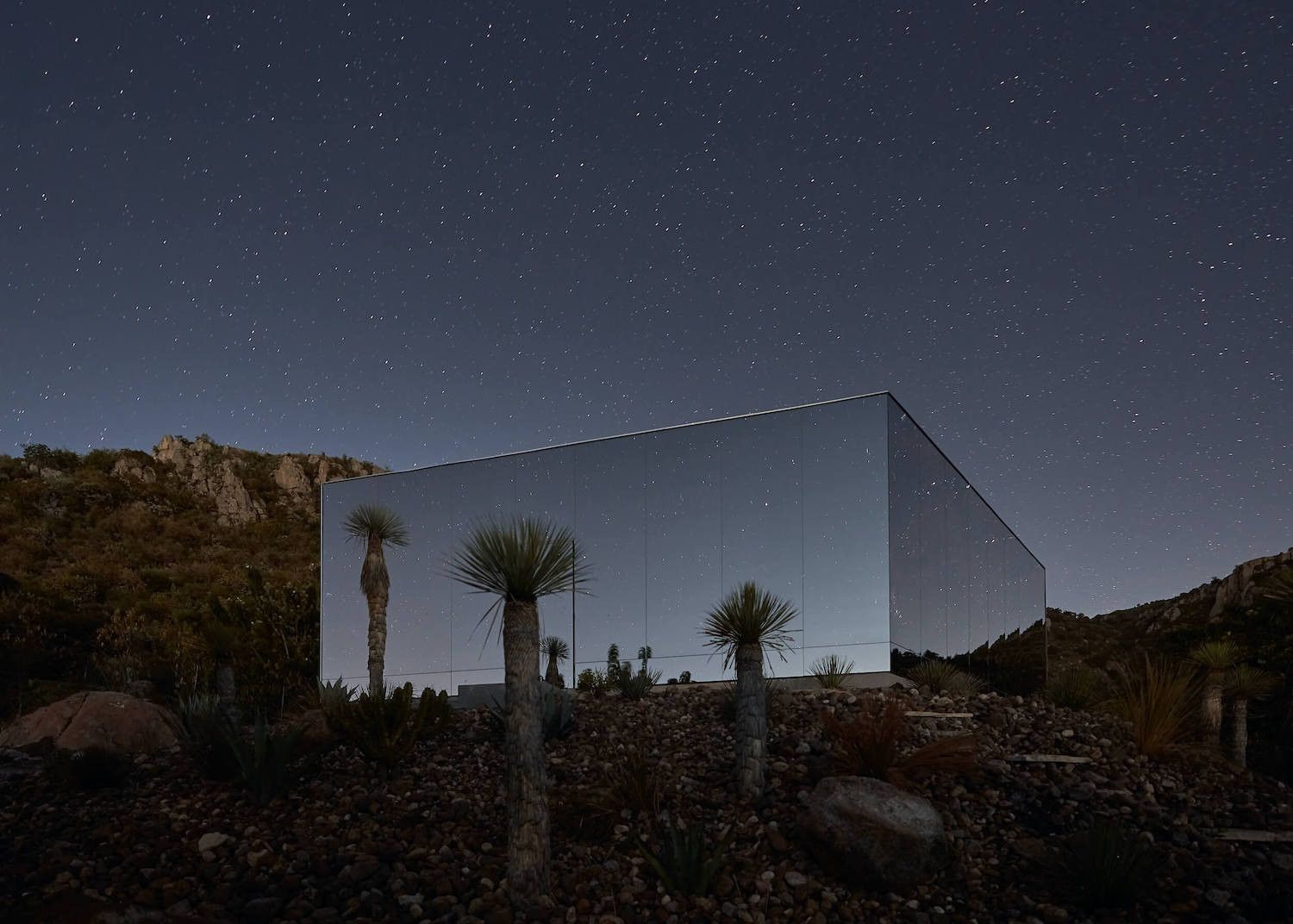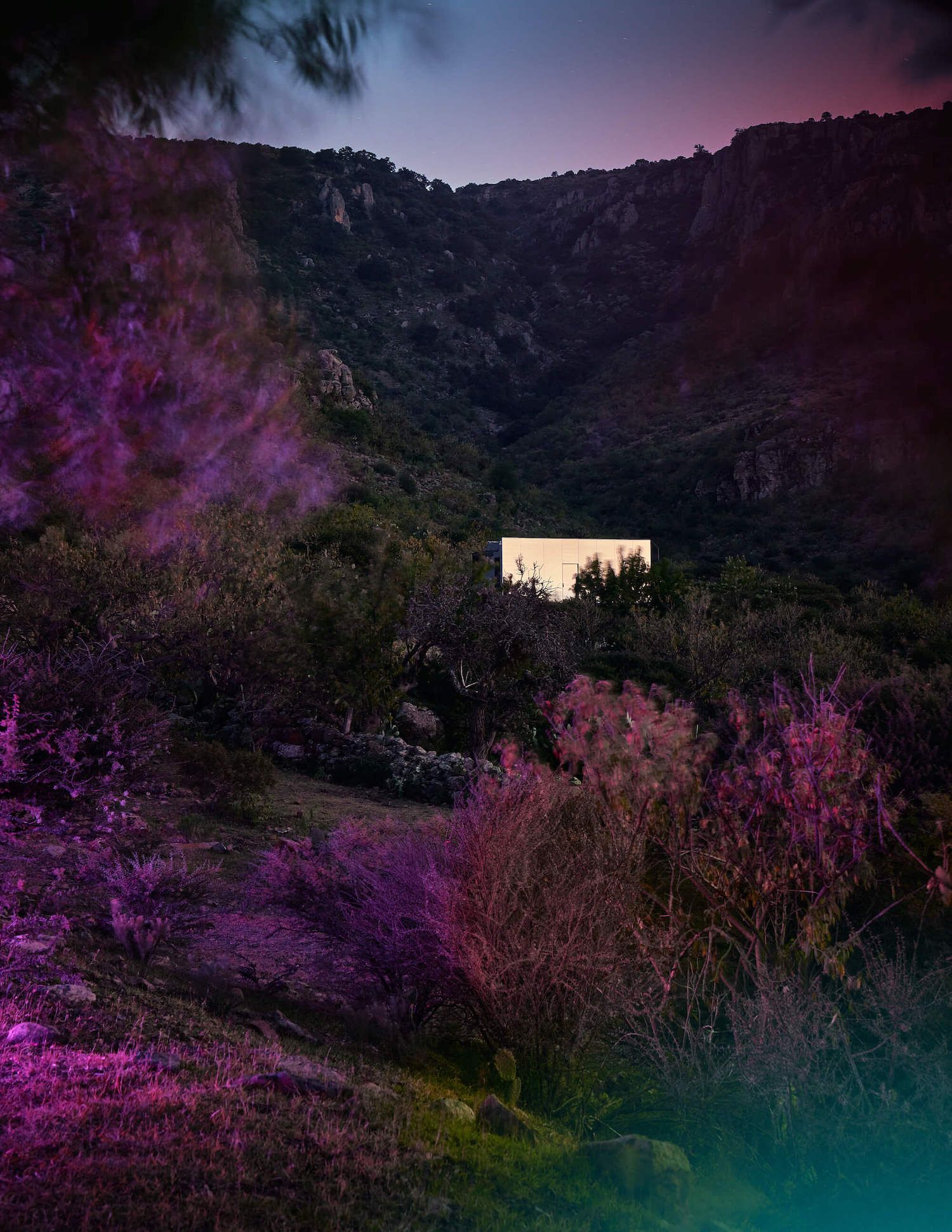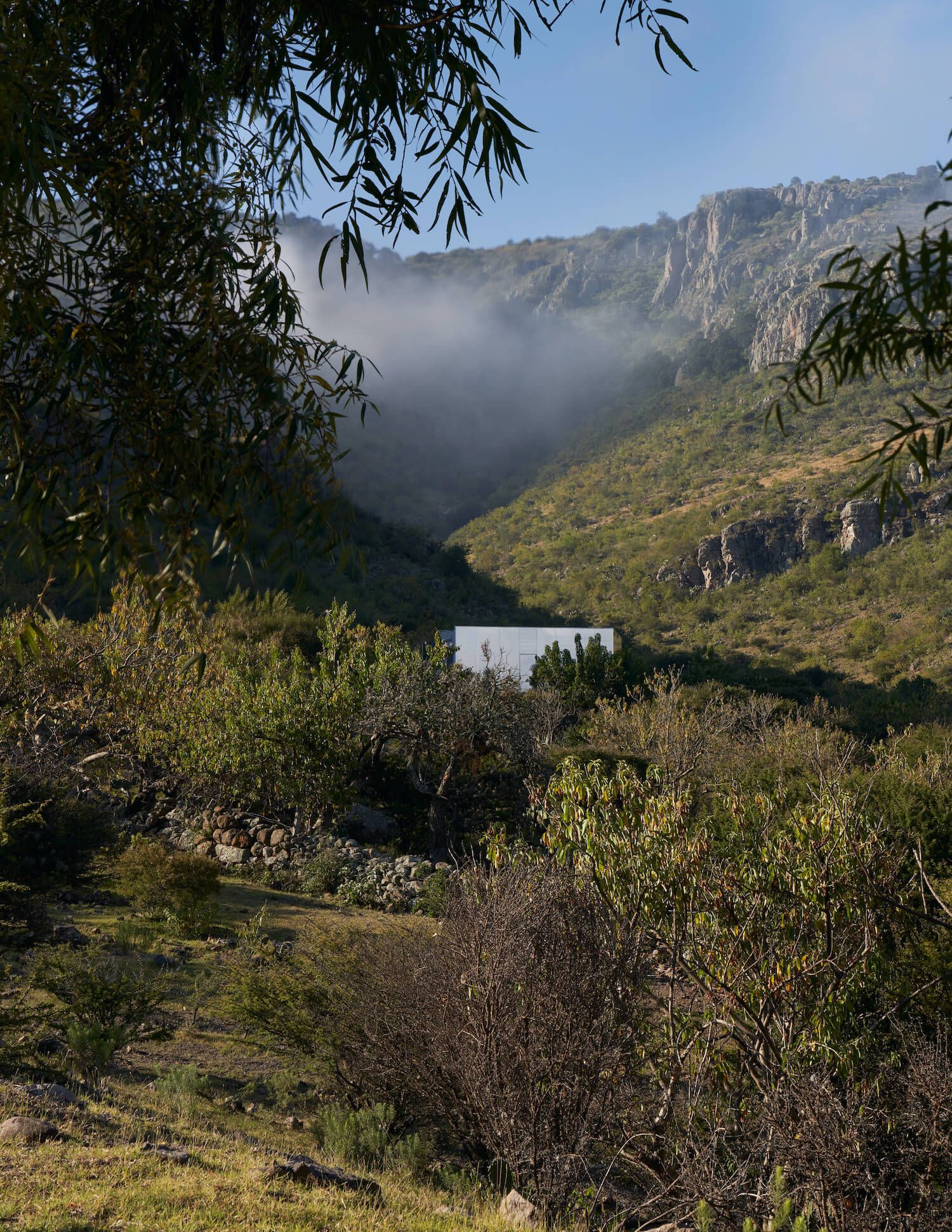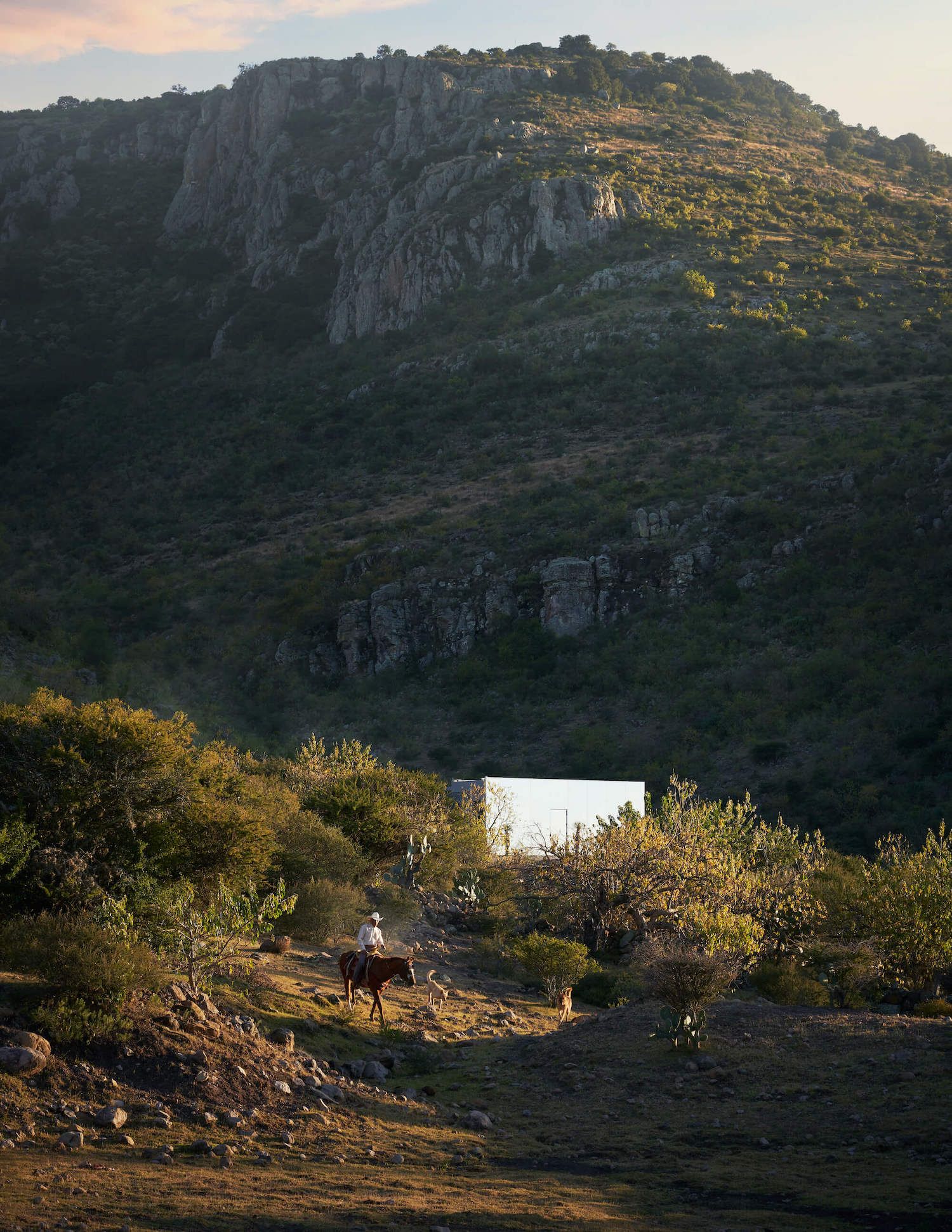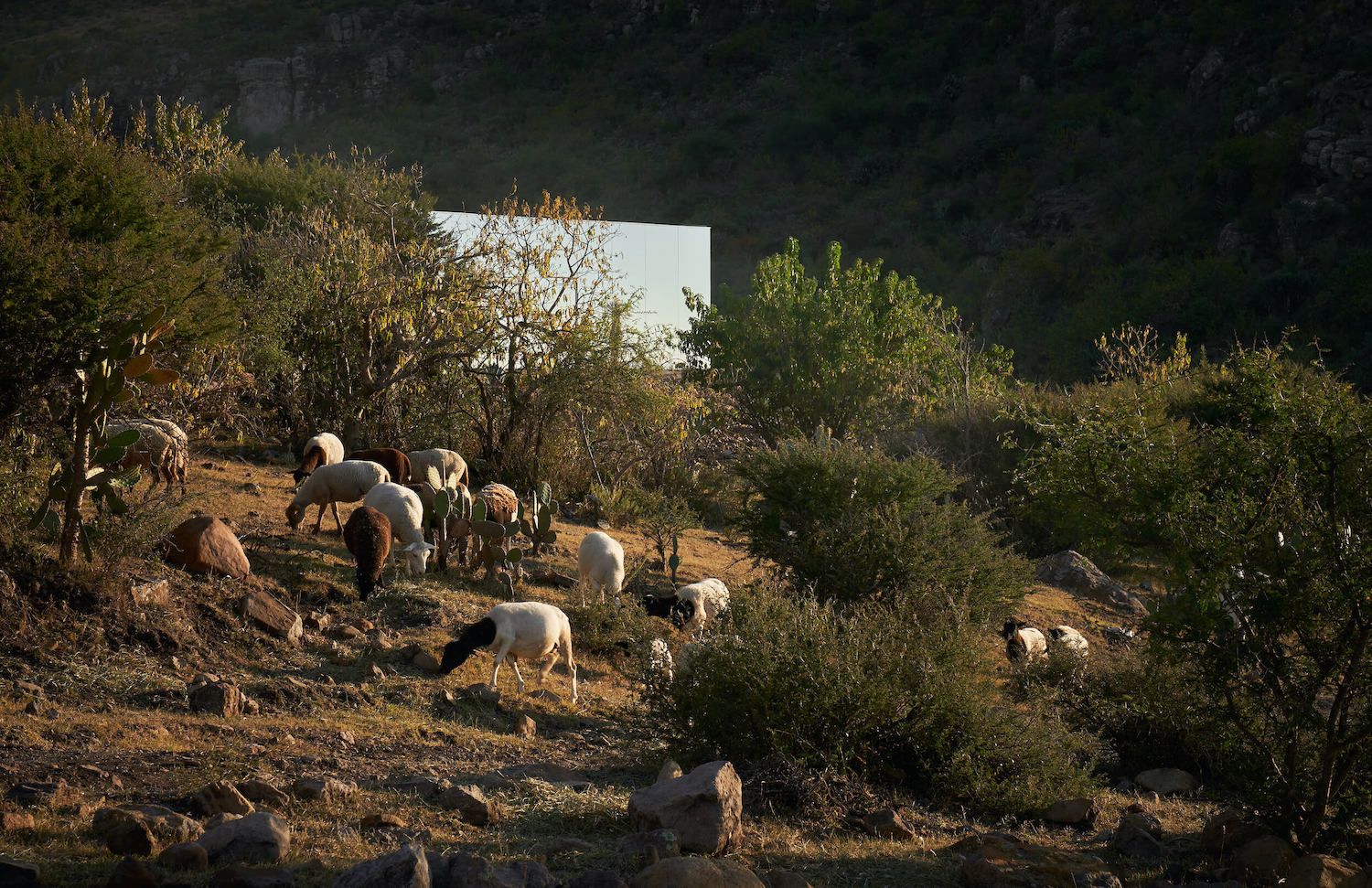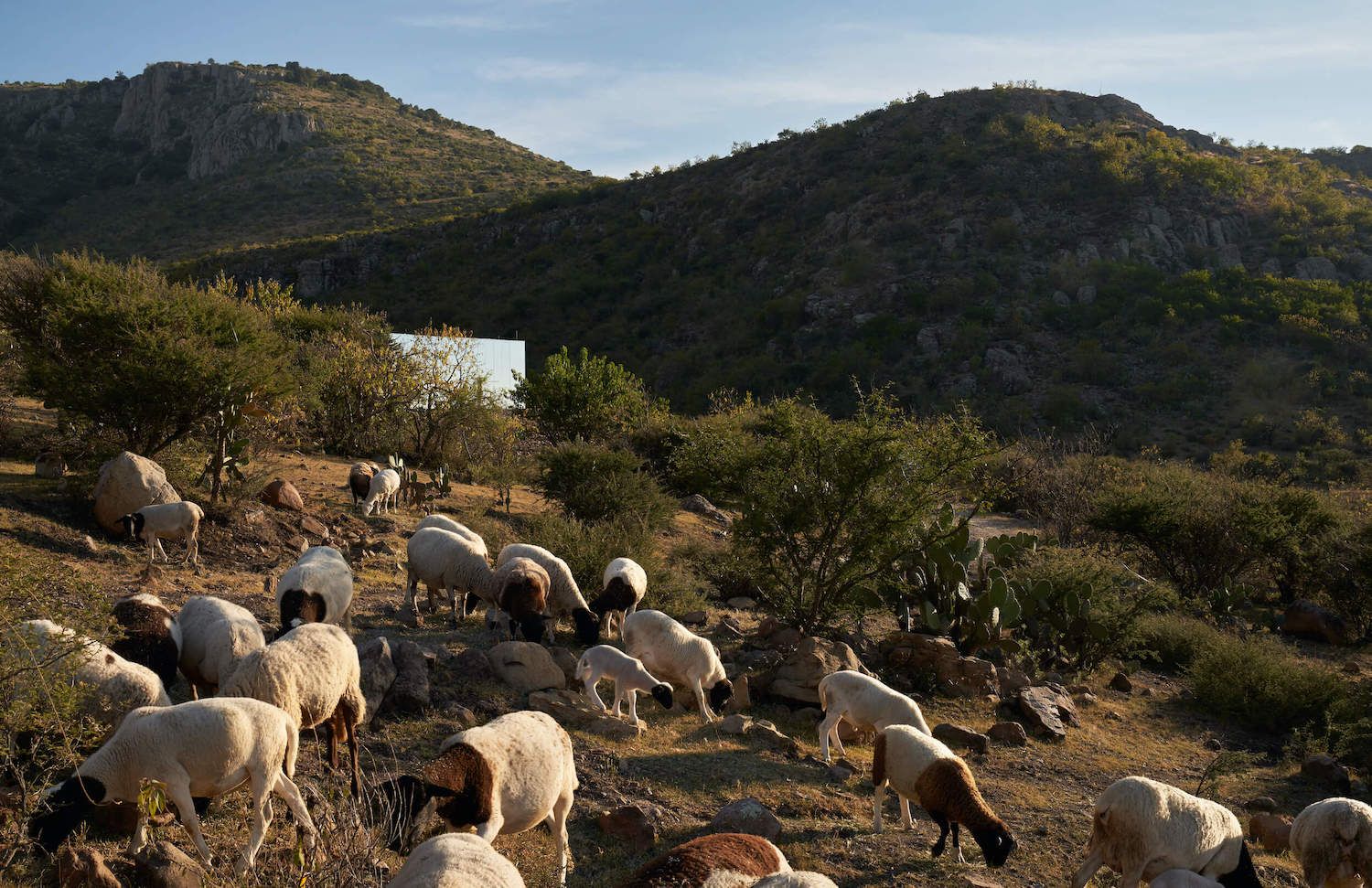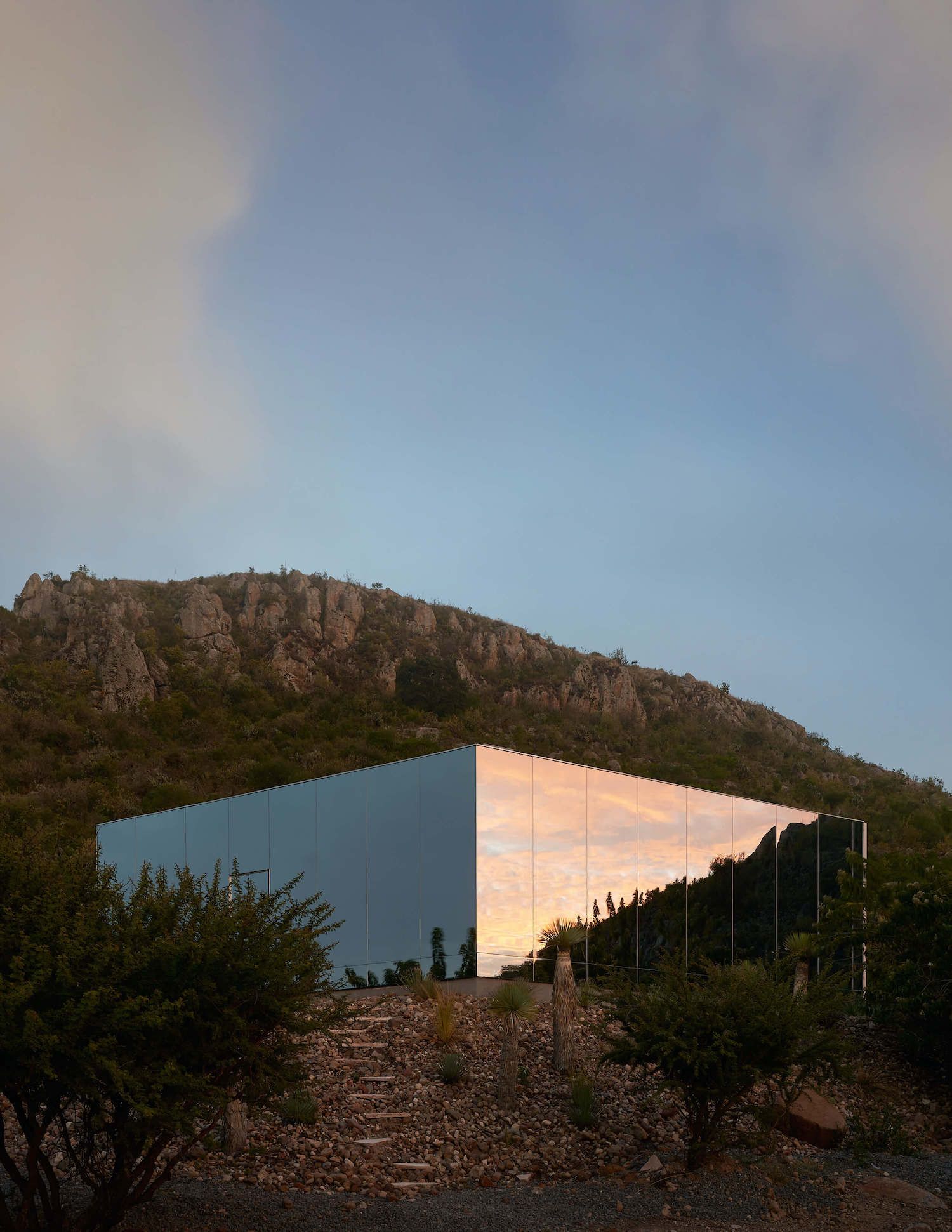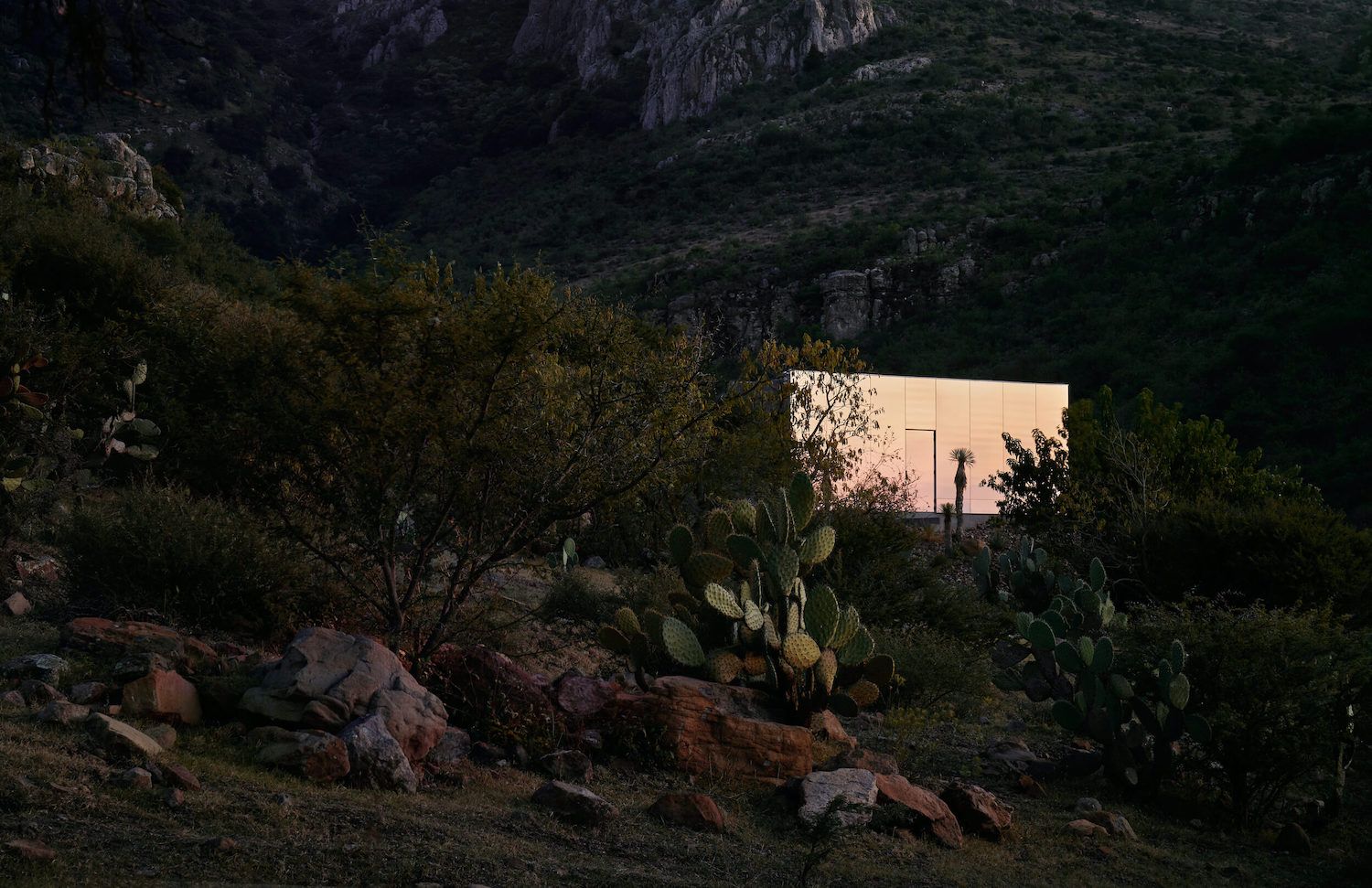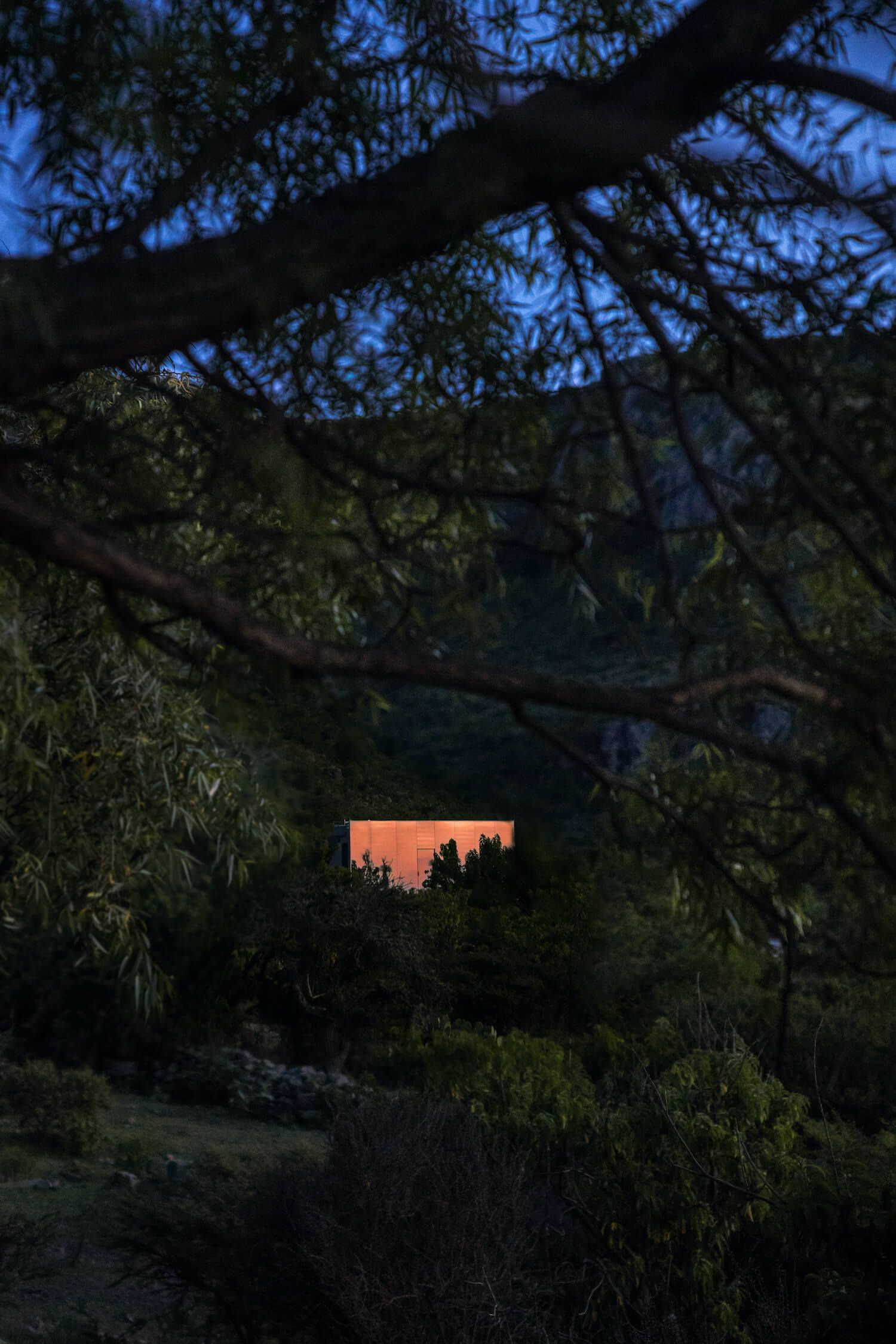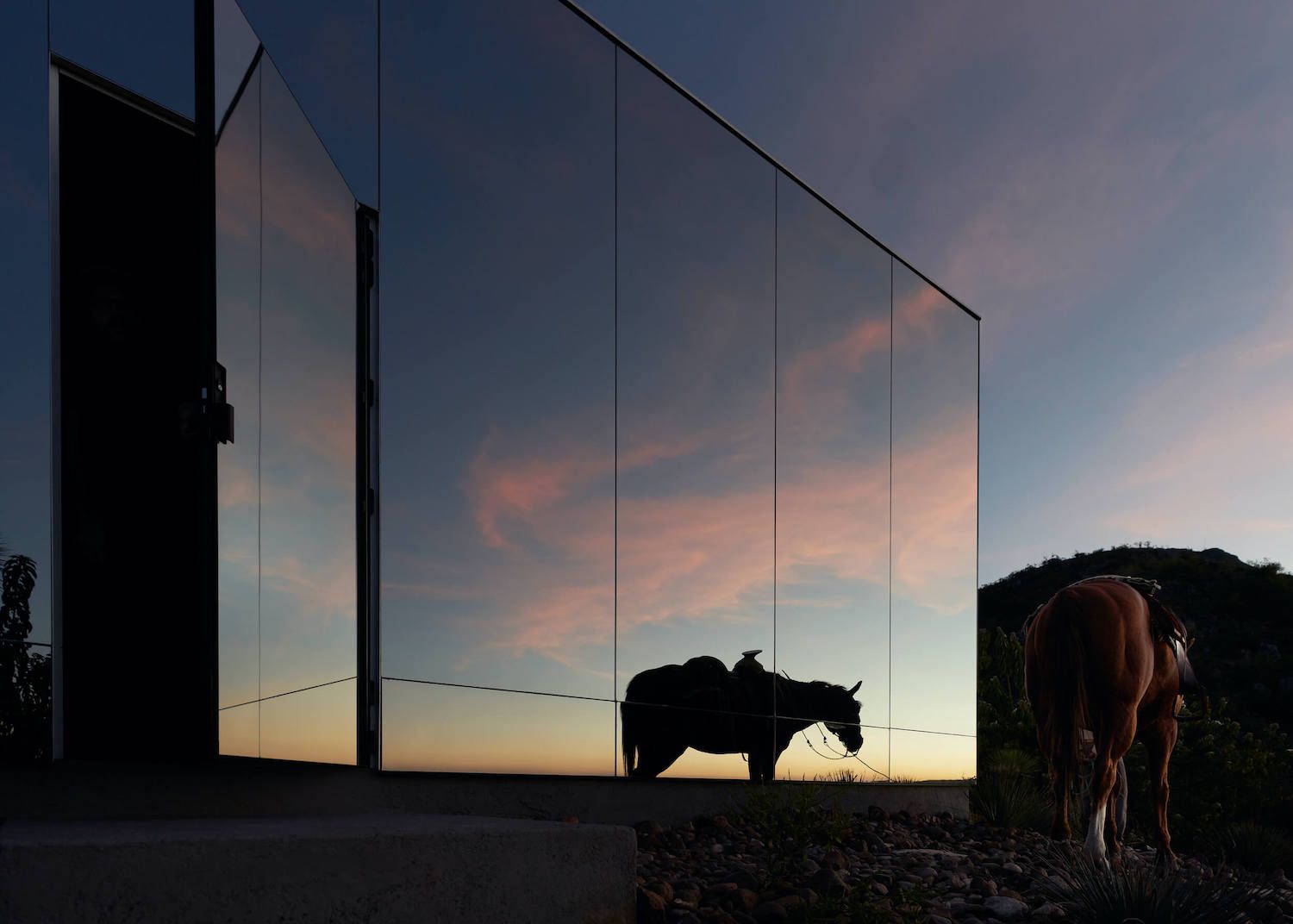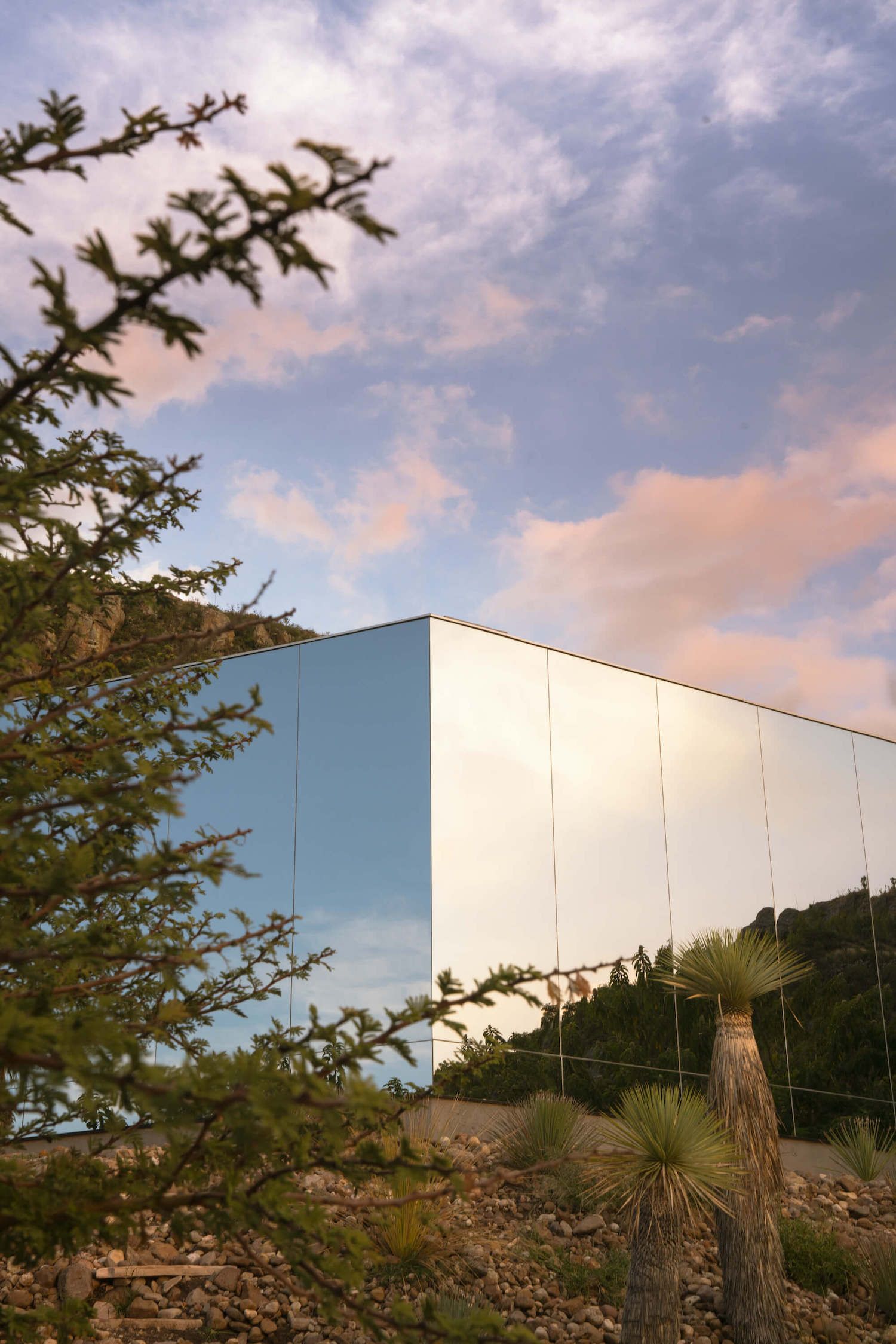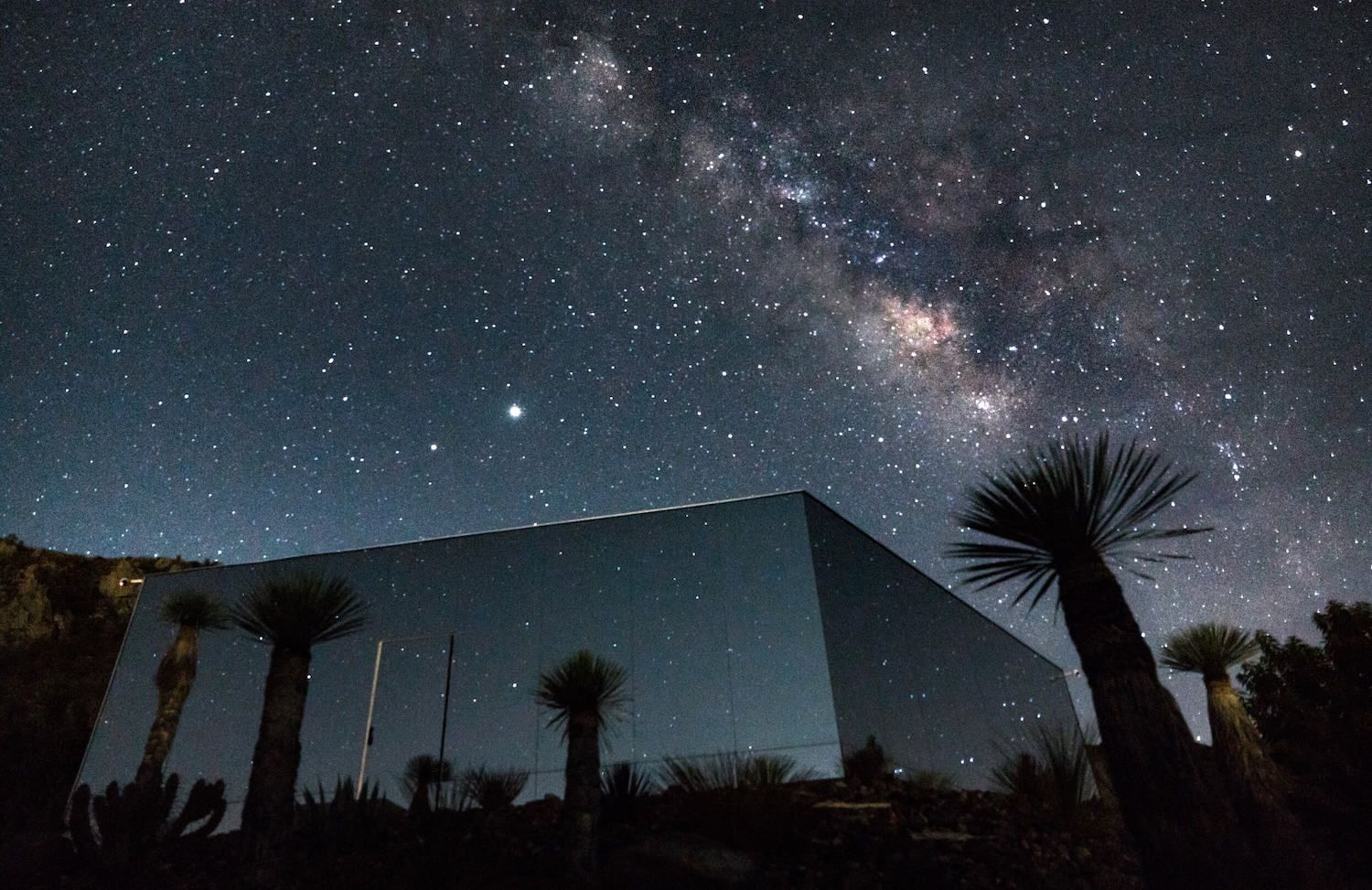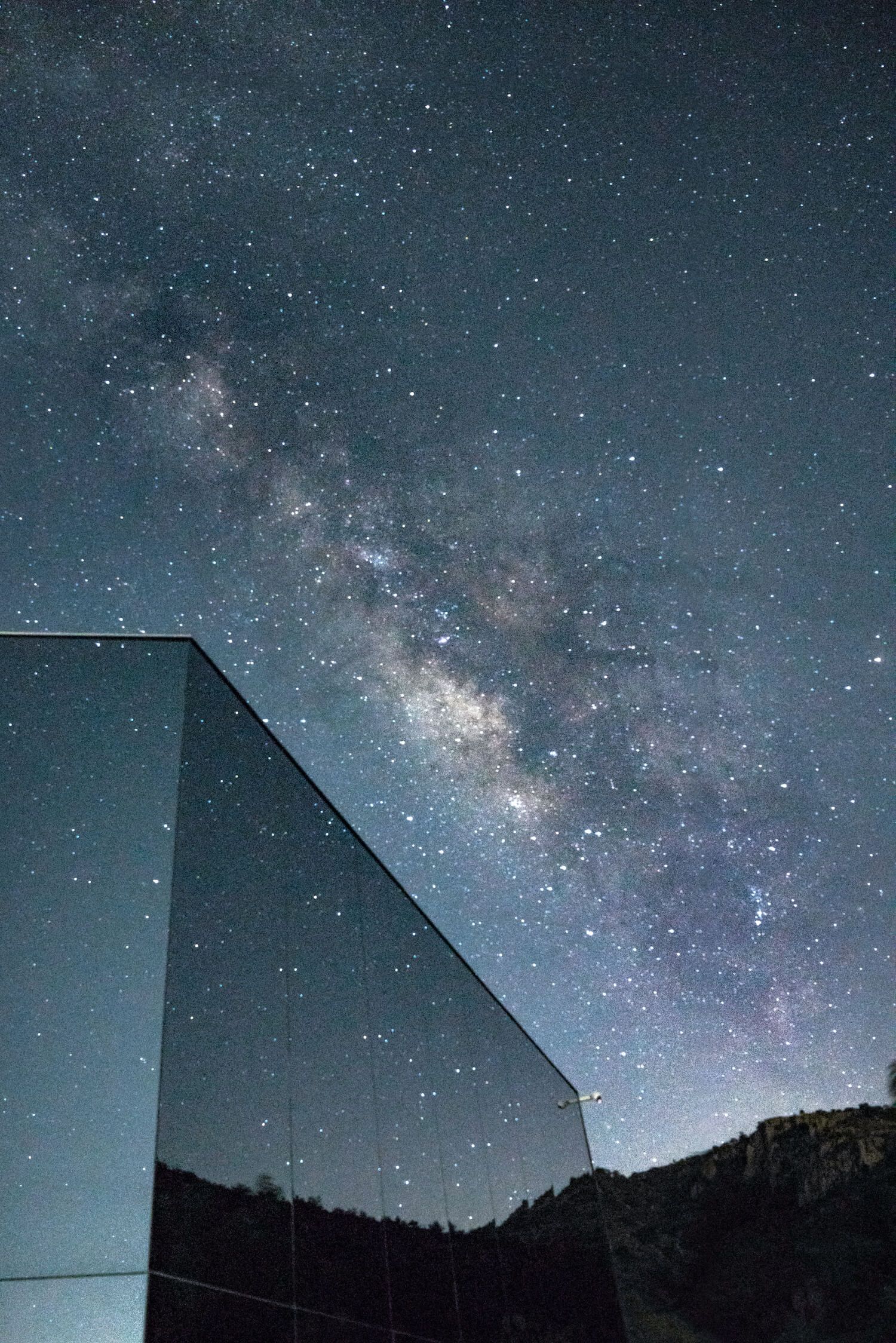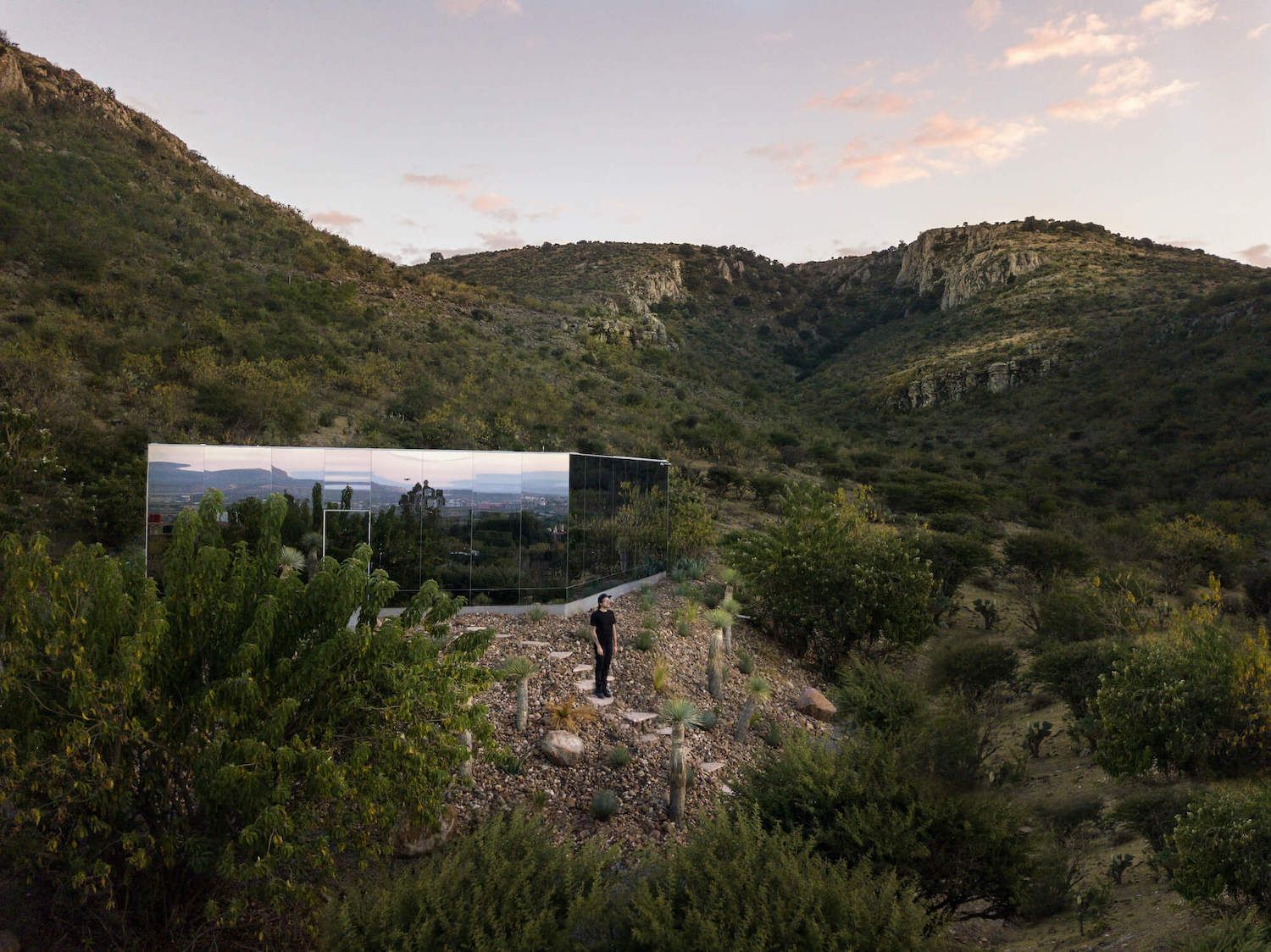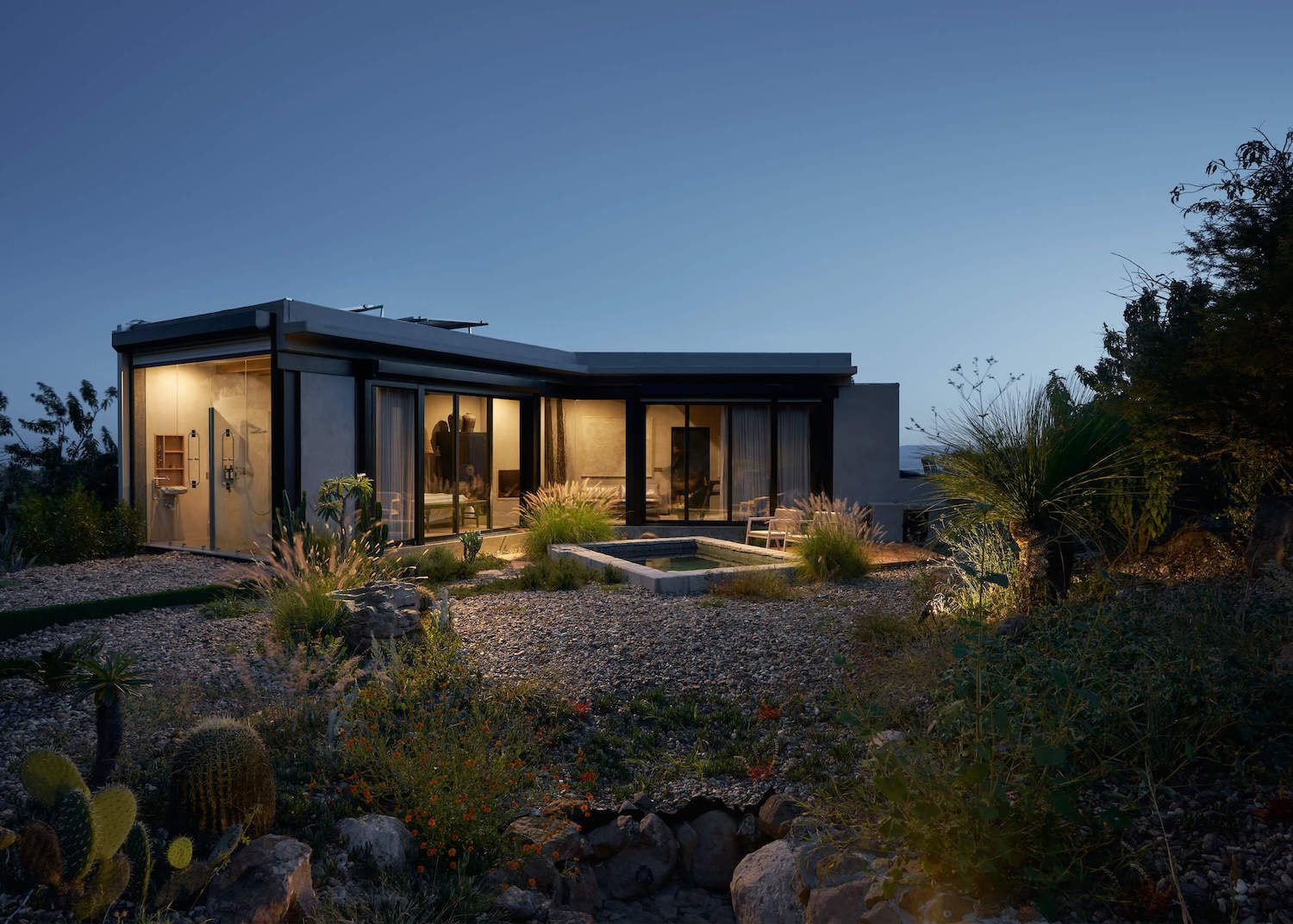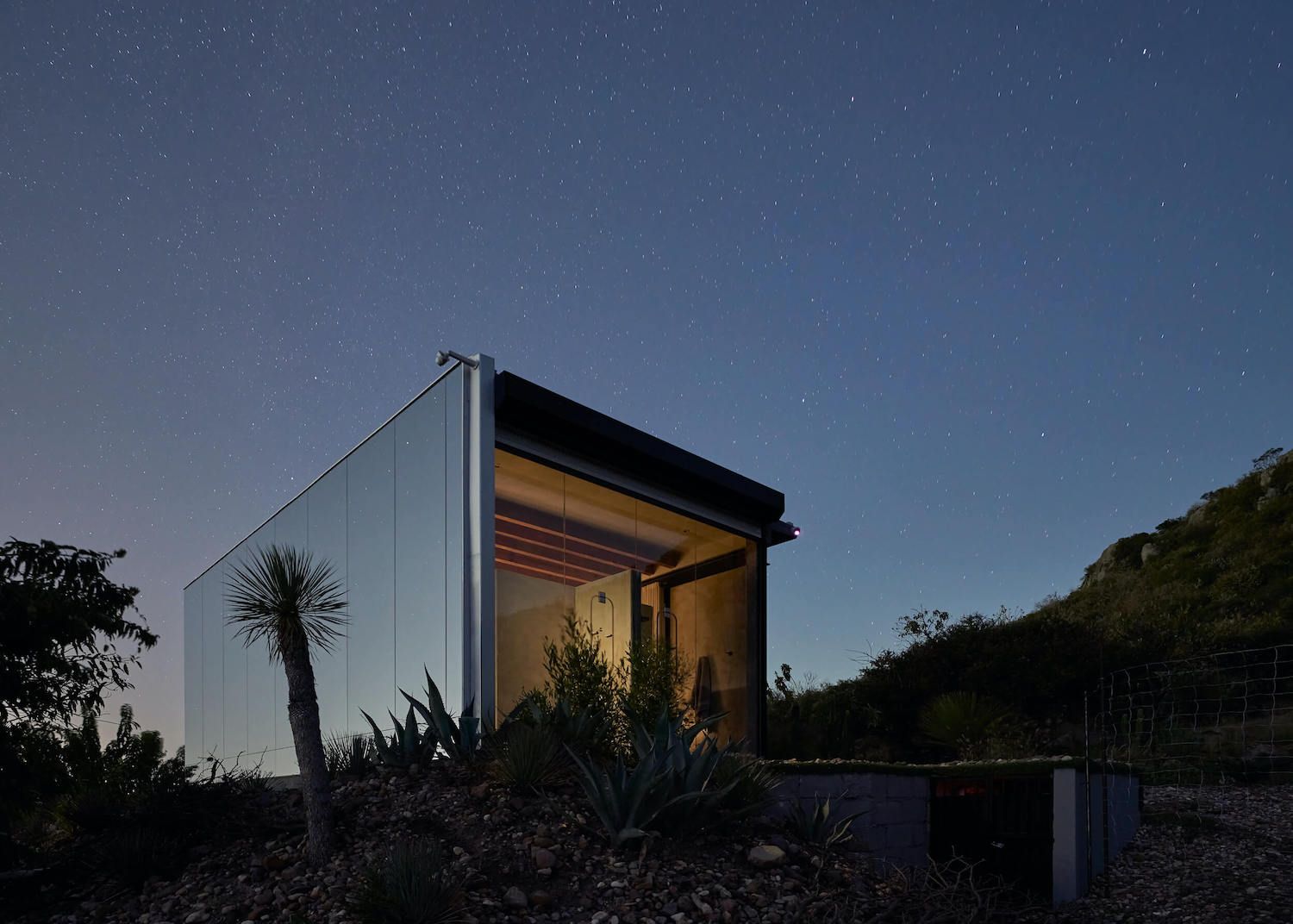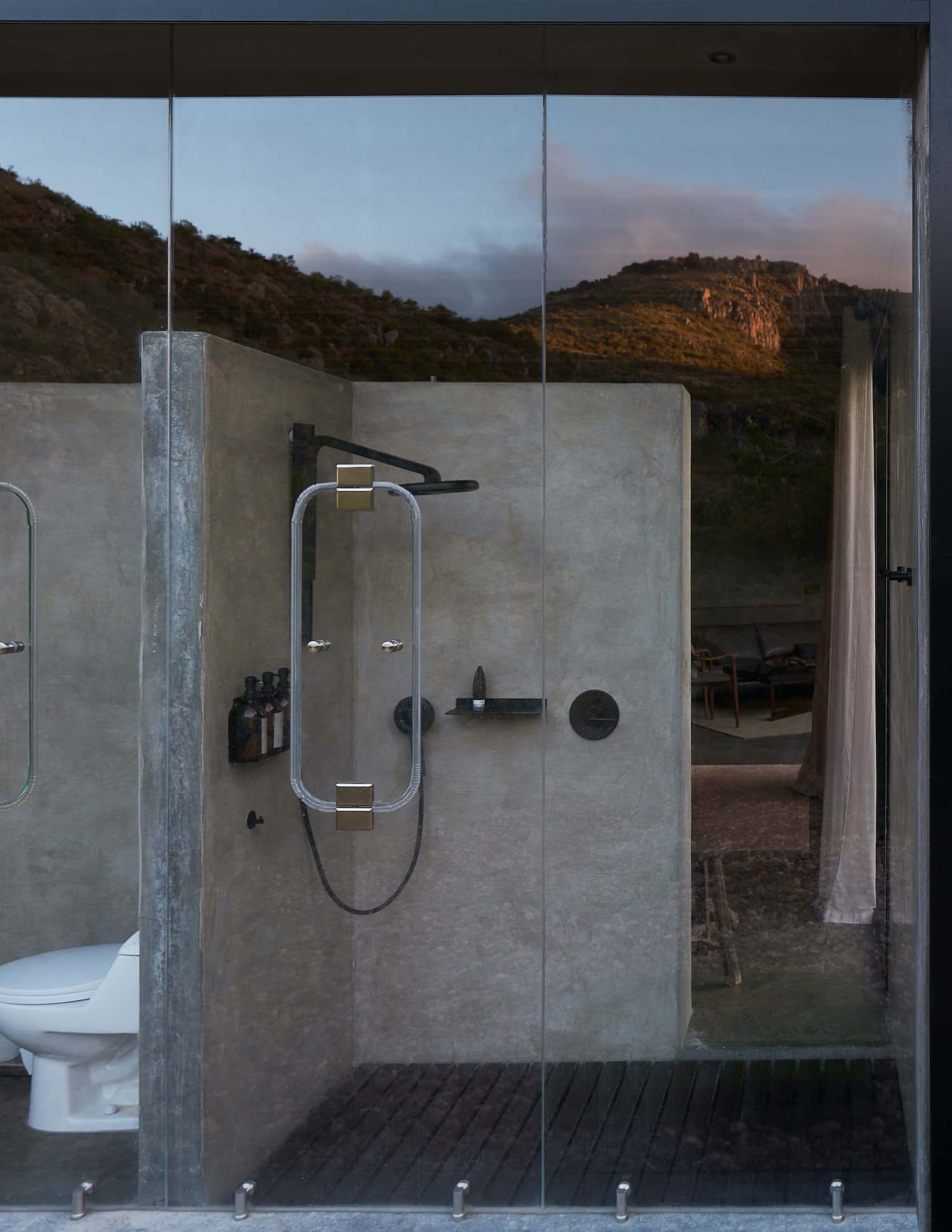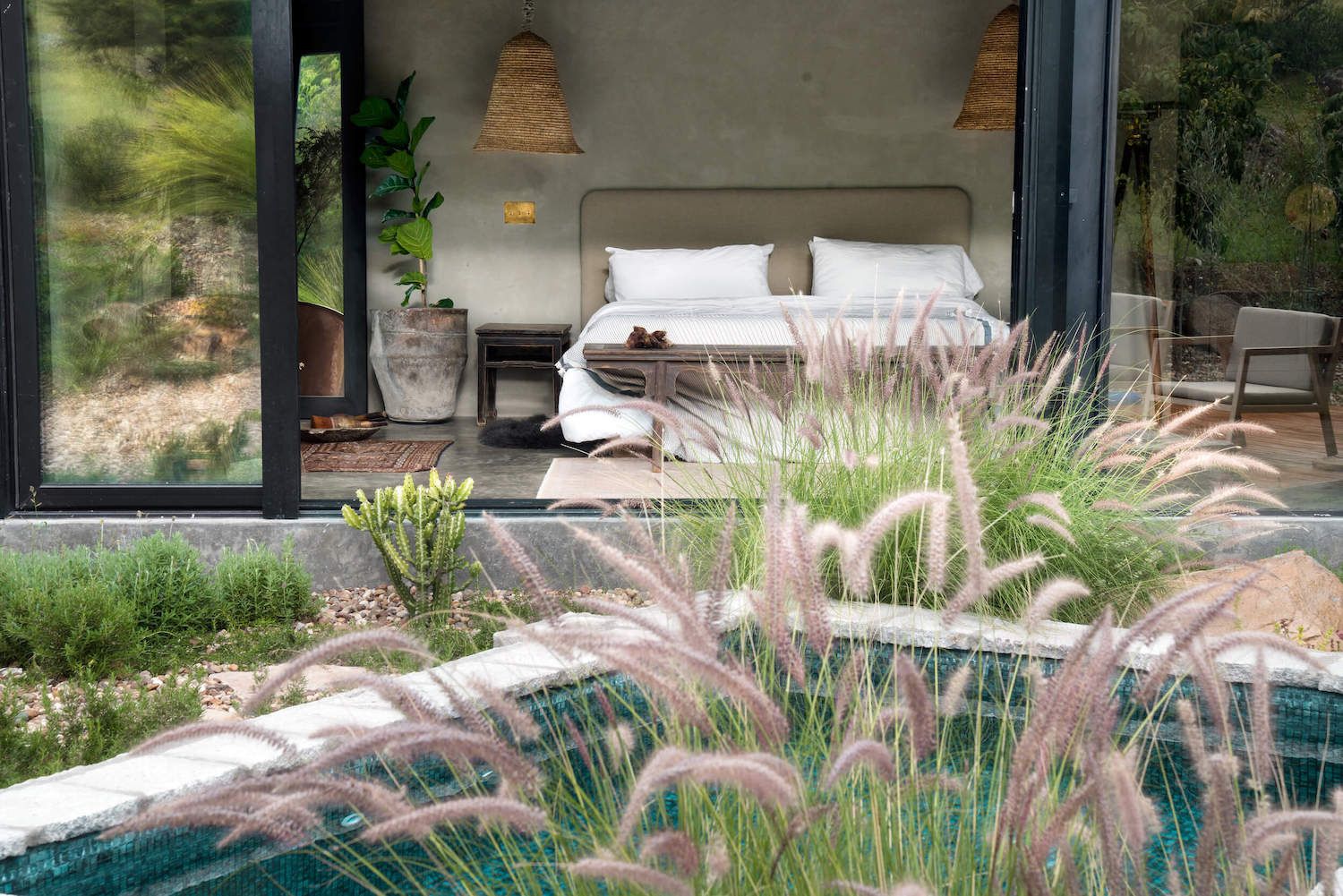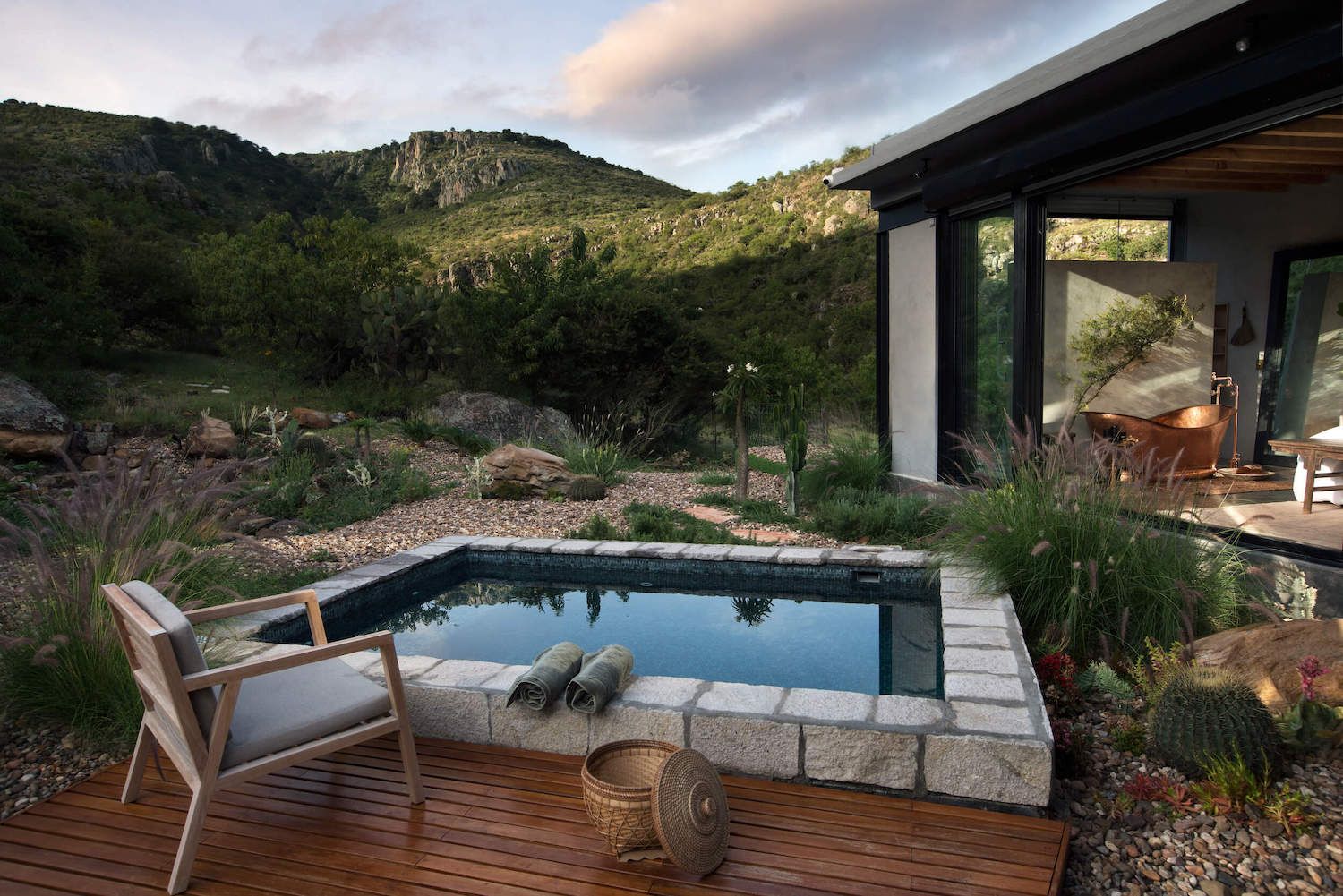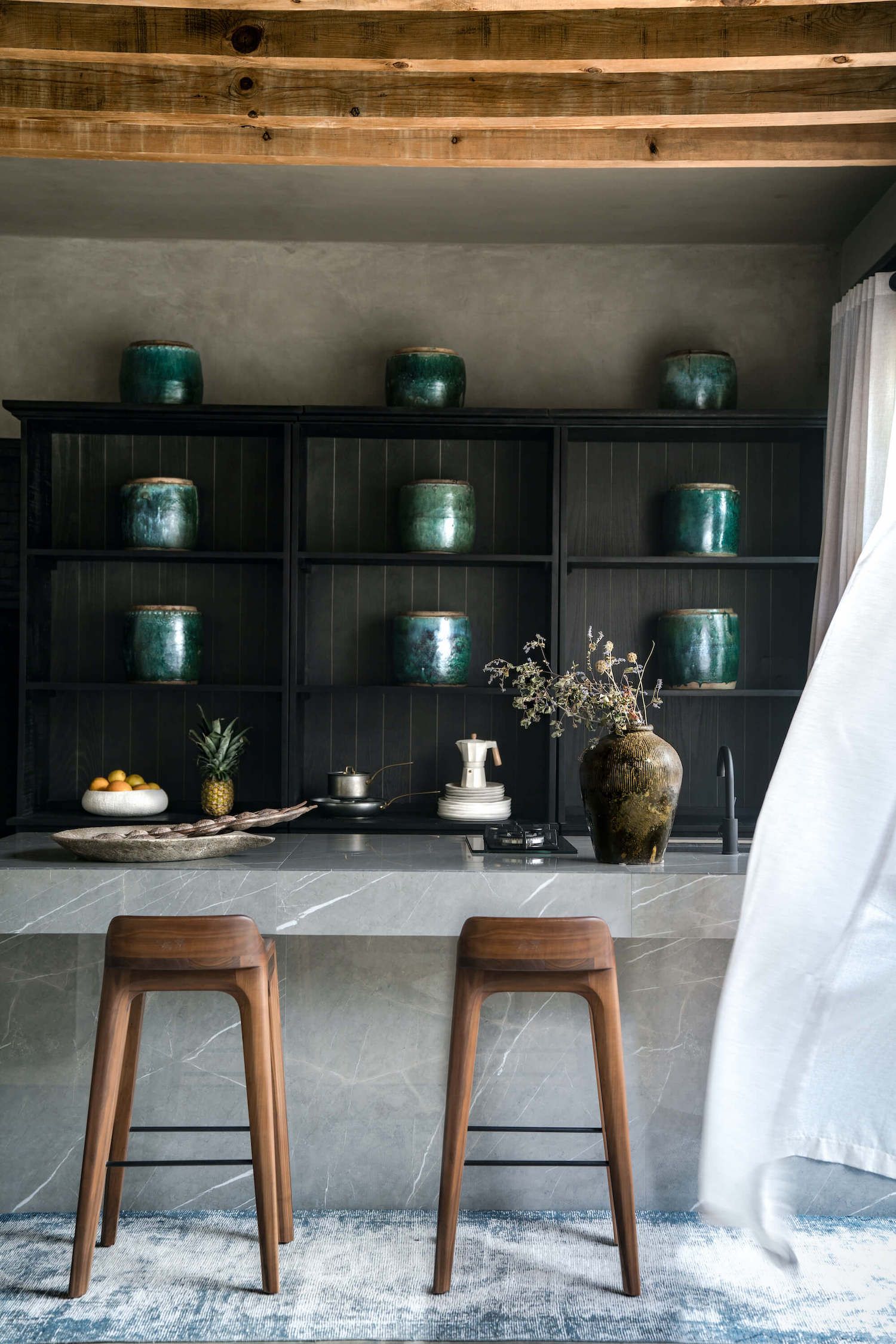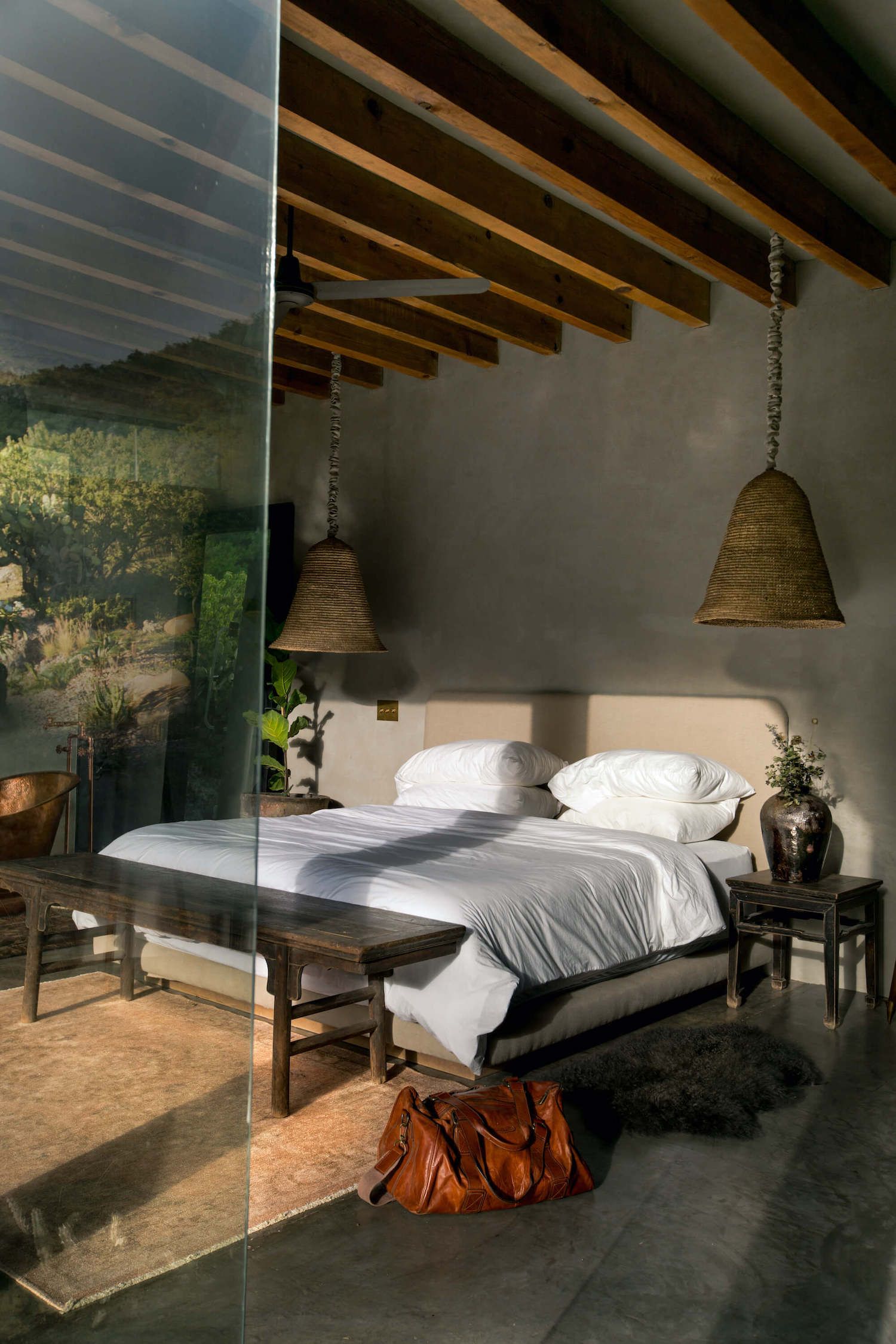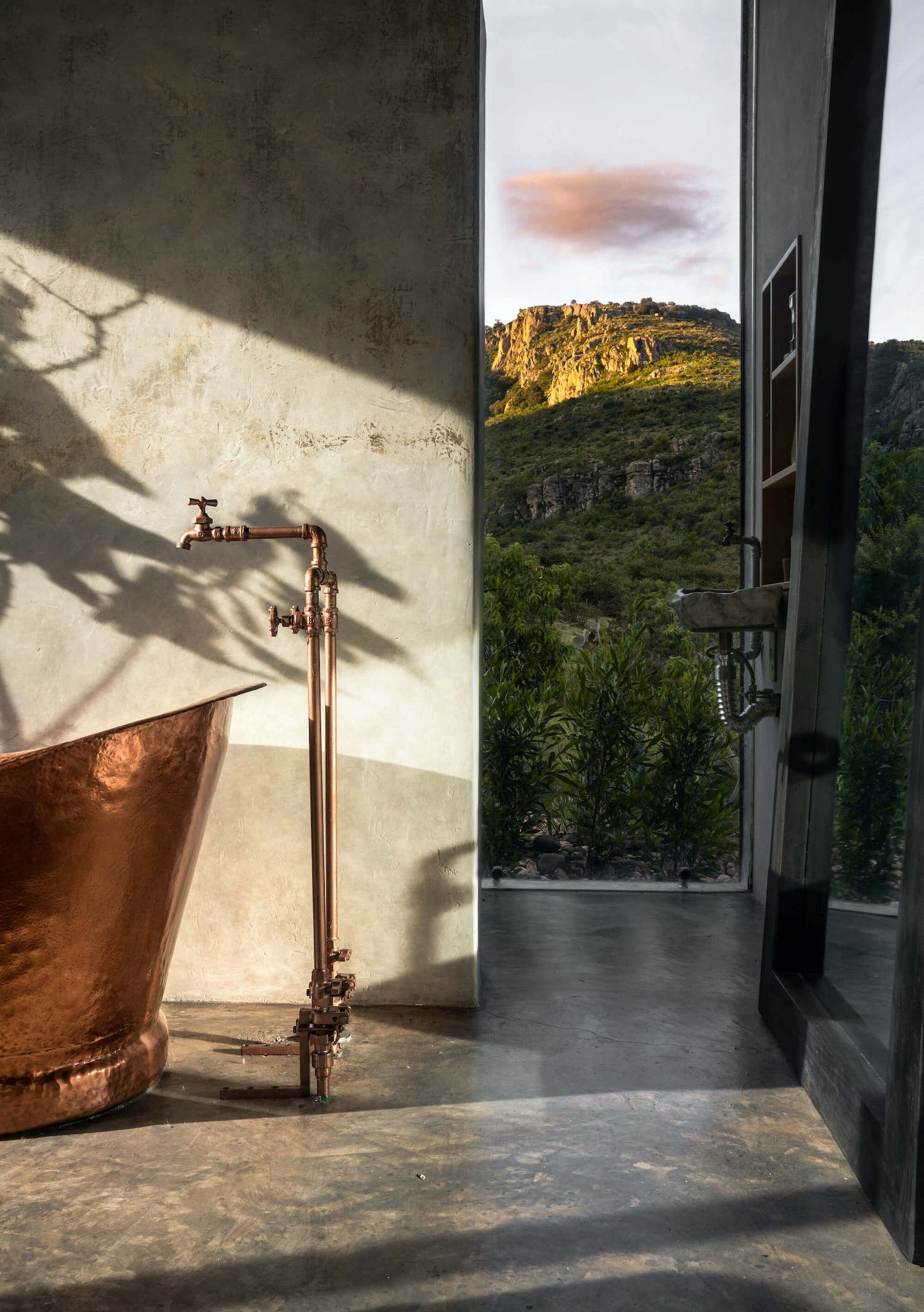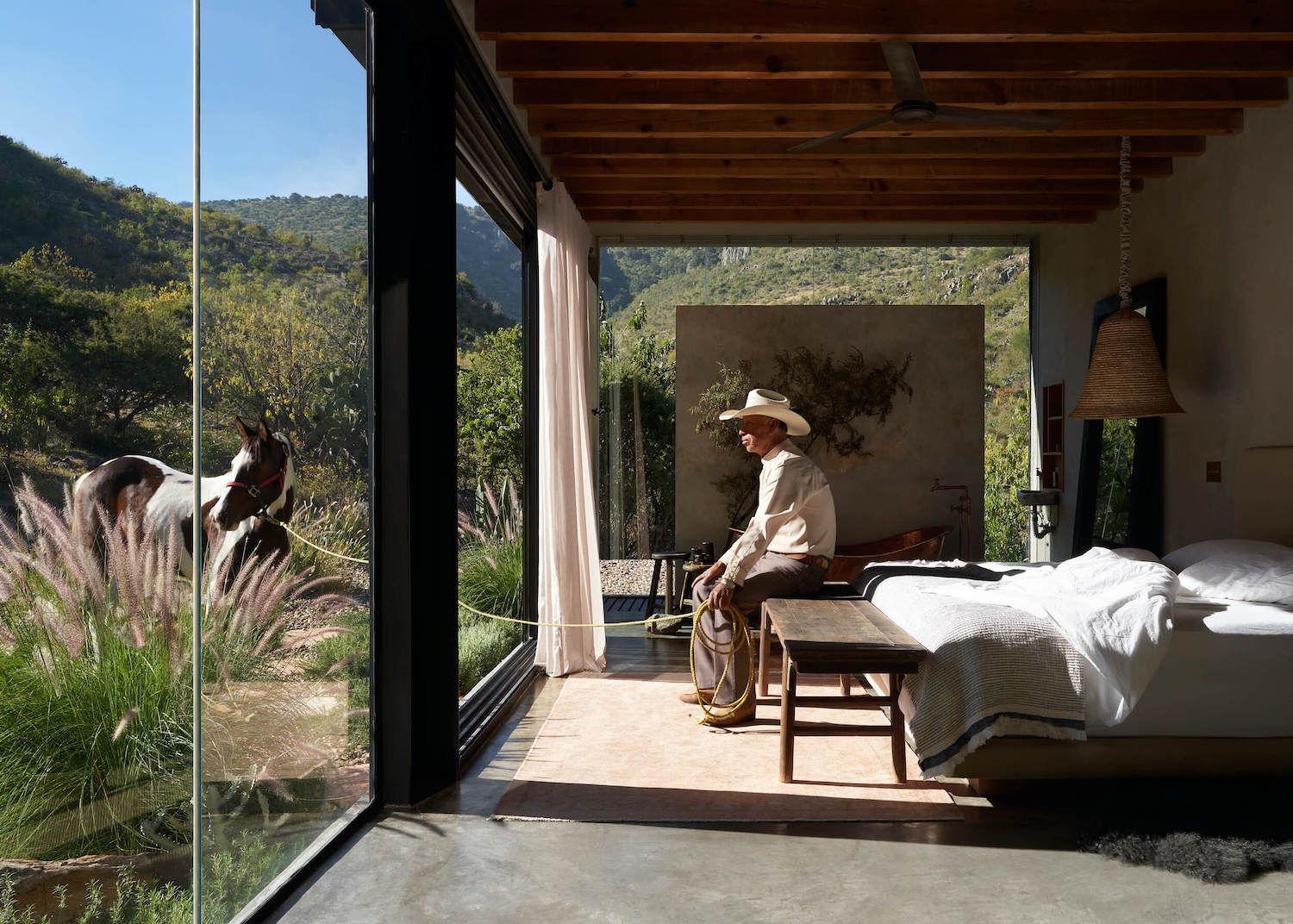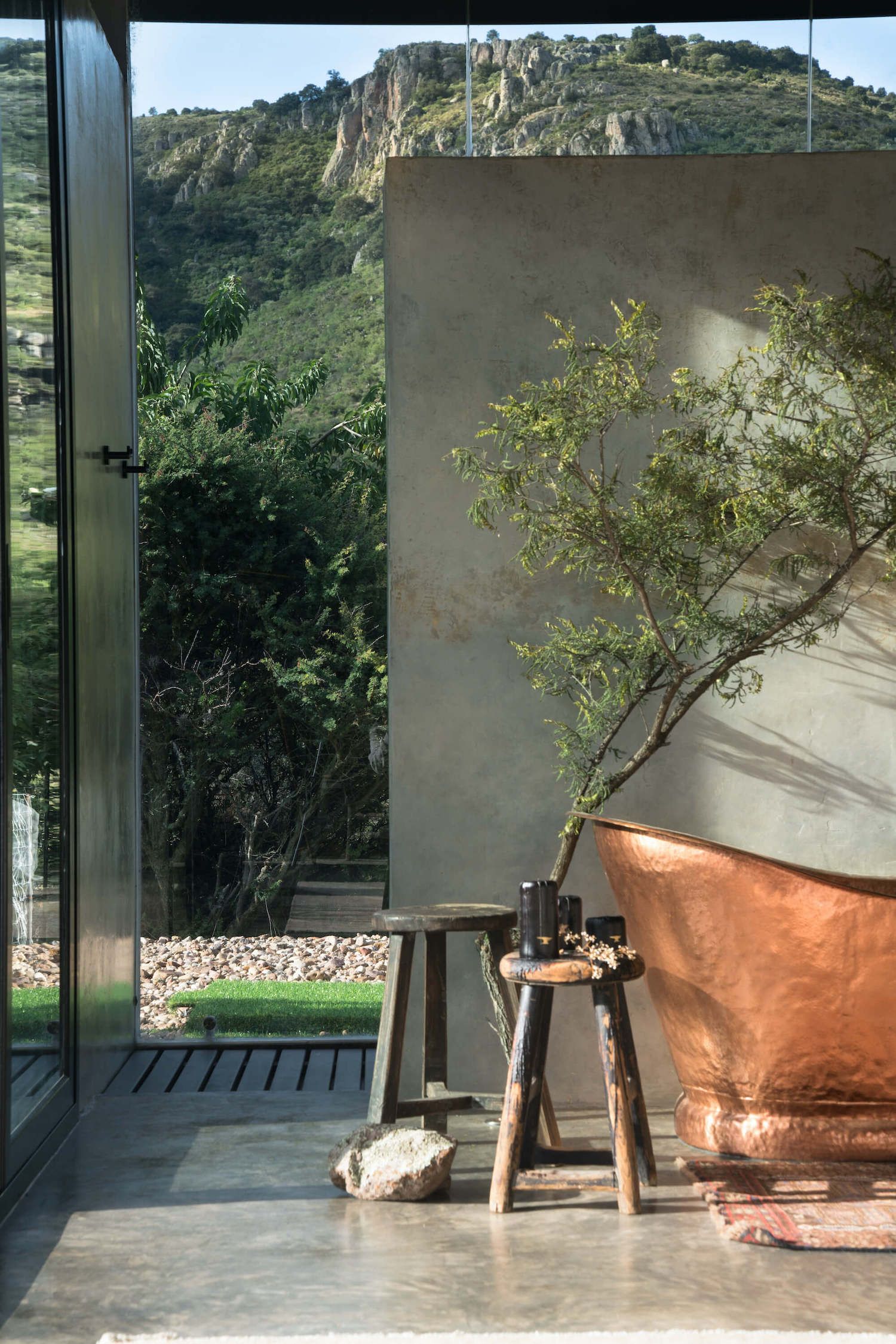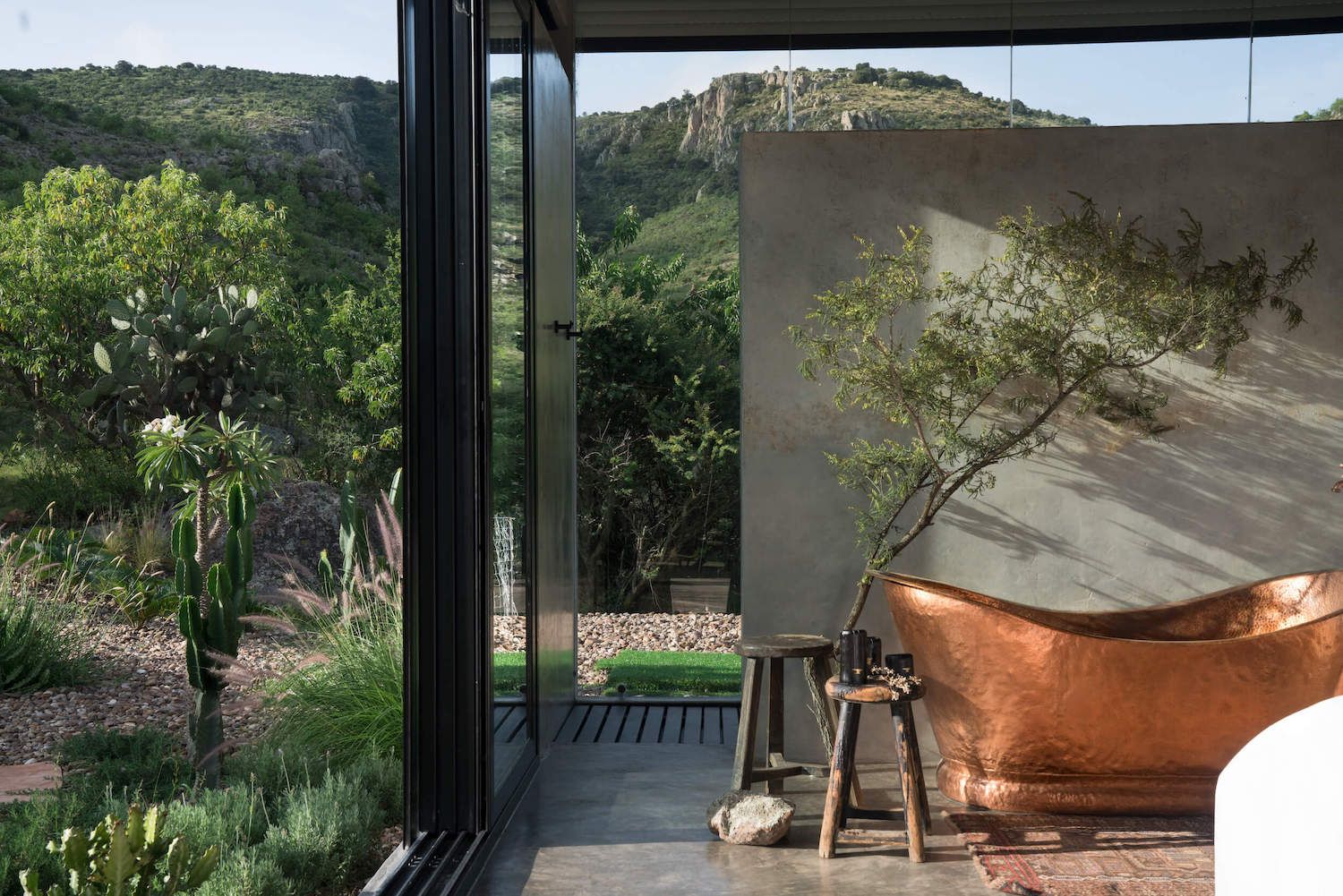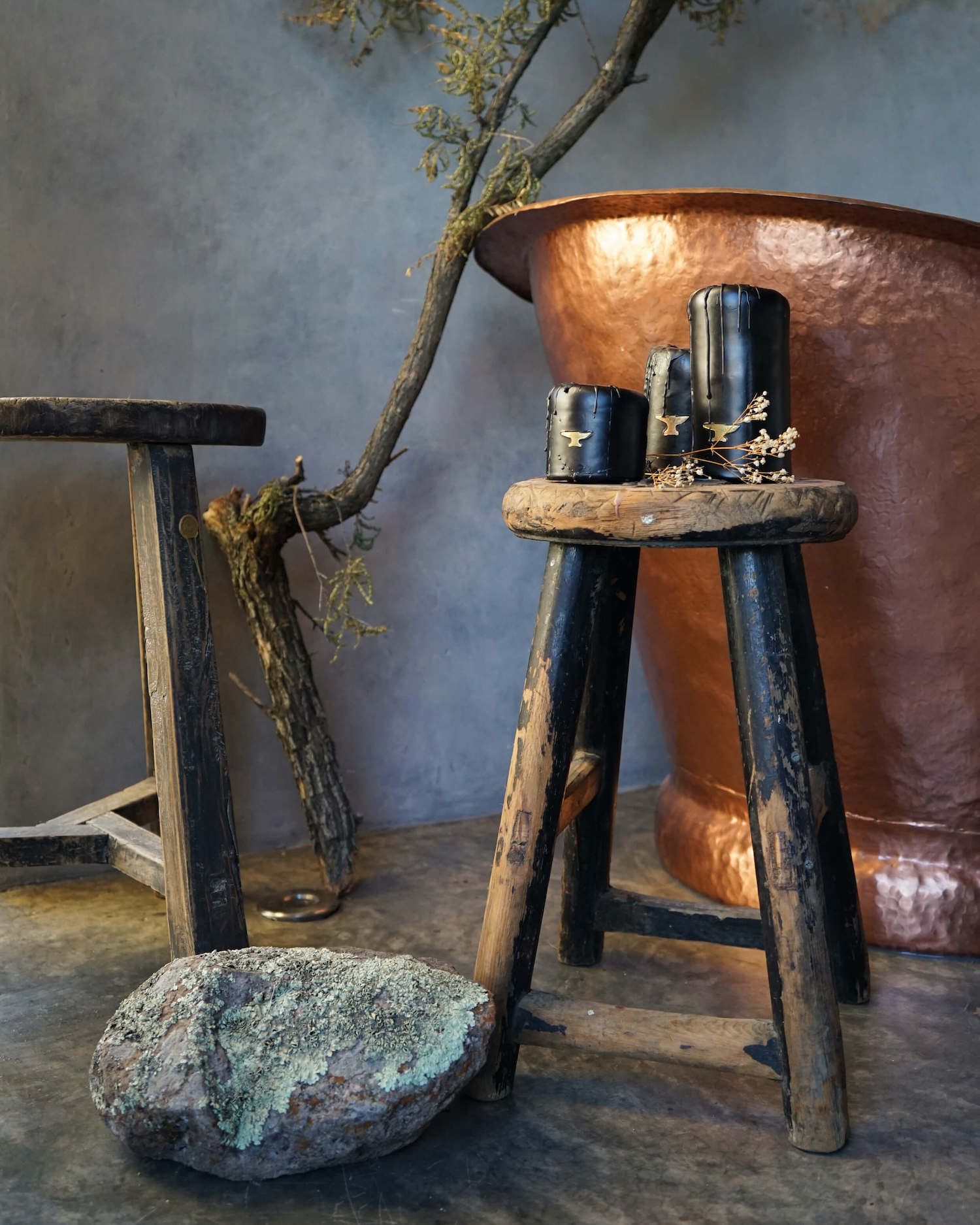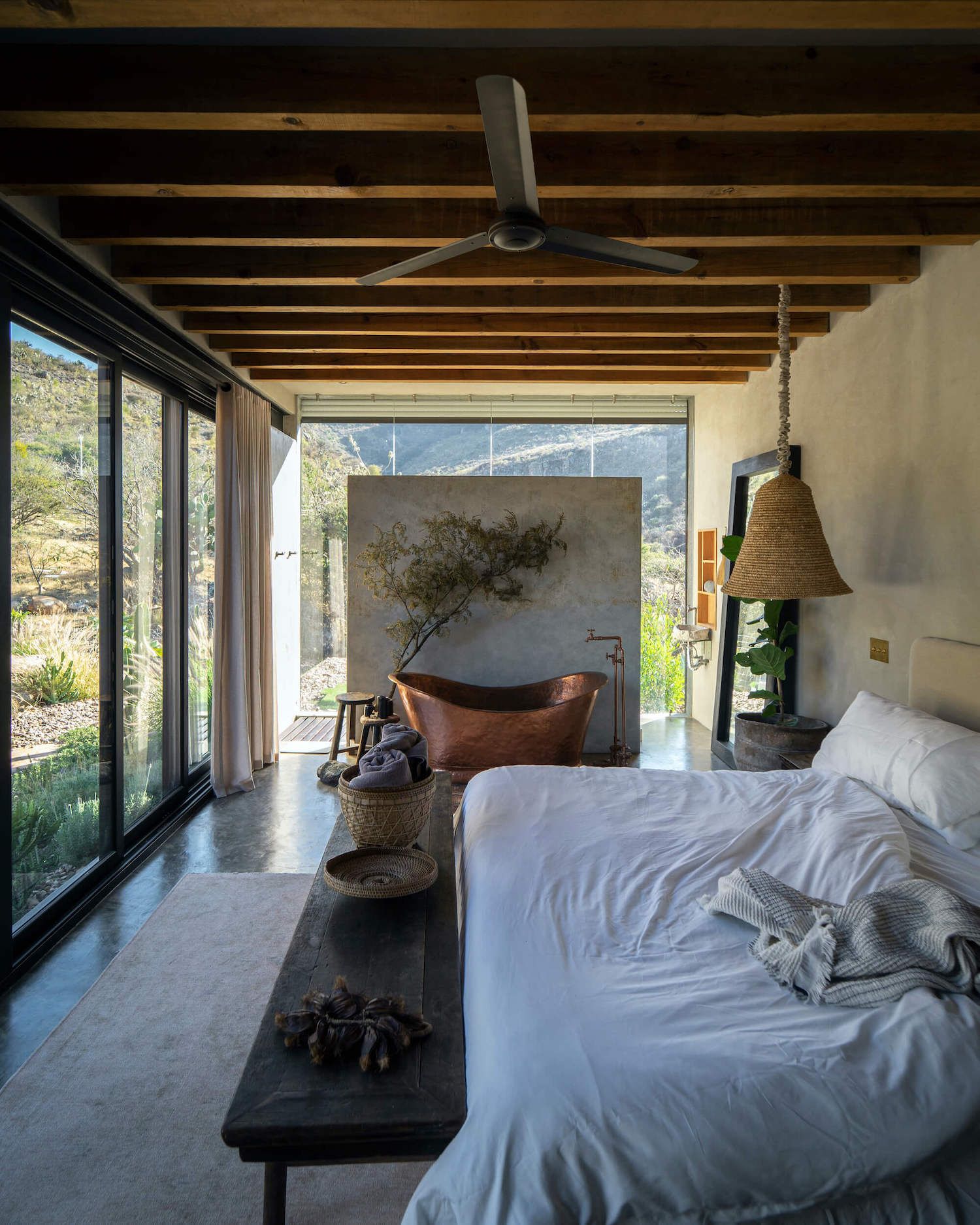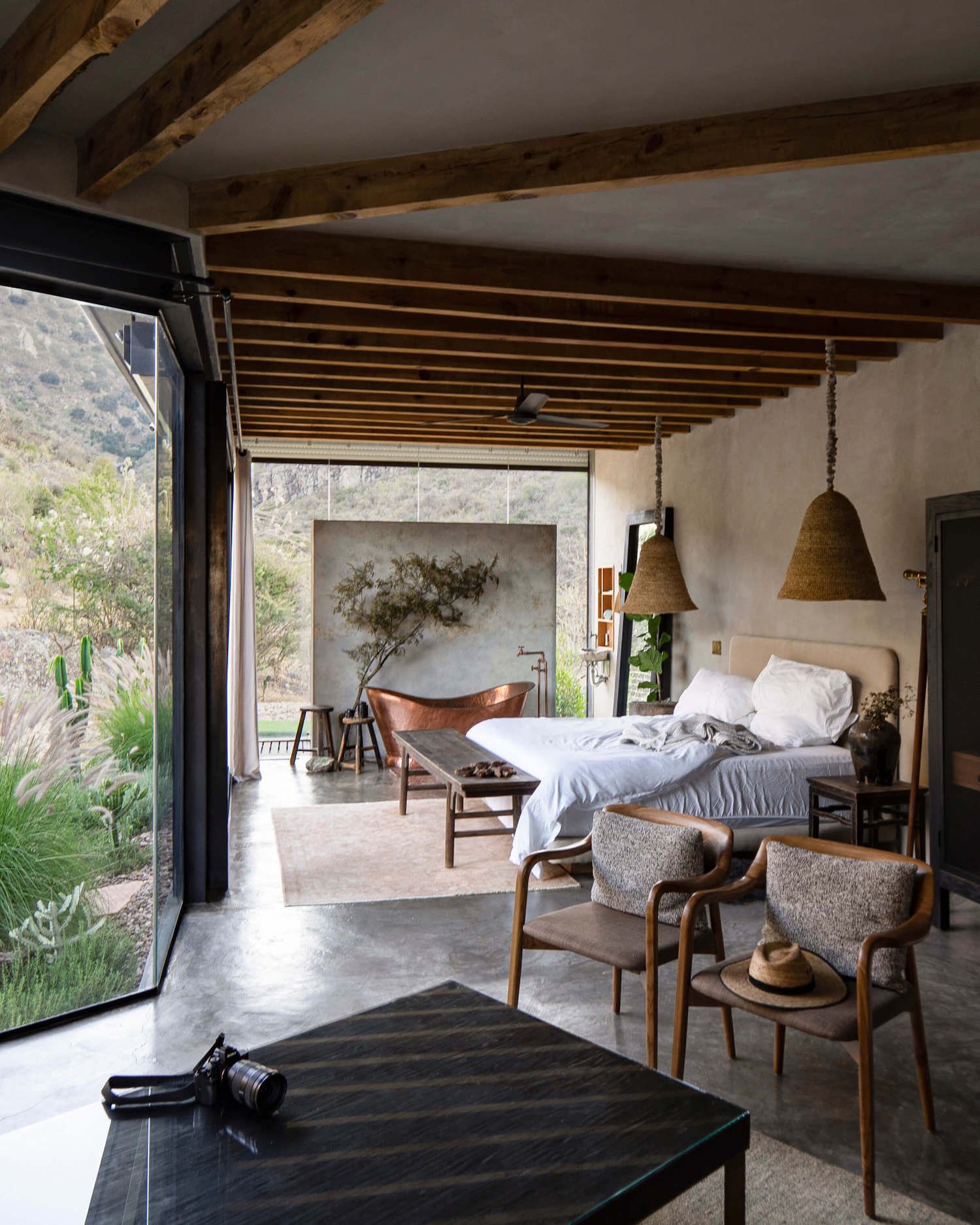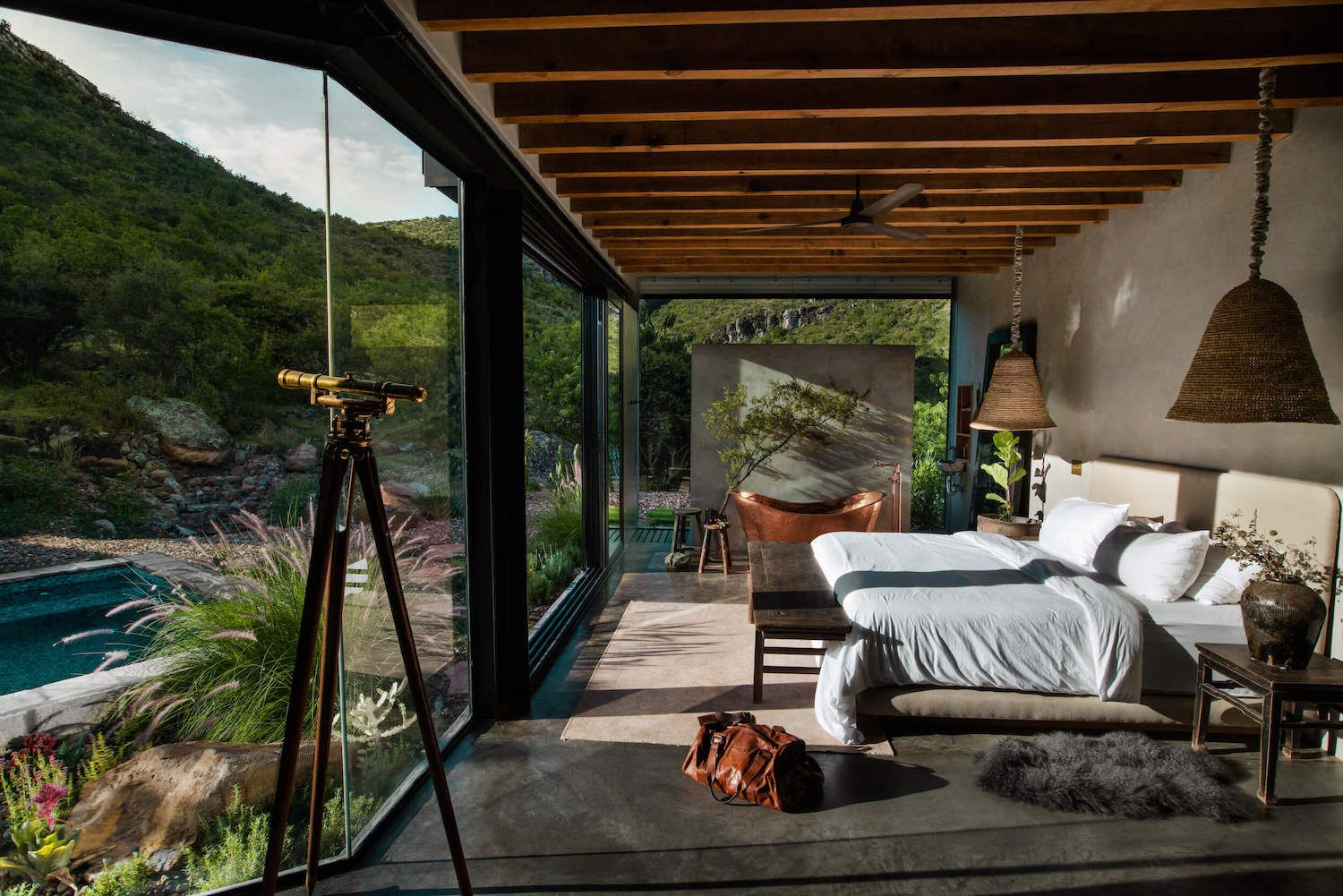Casa Etérea
Casa Etérea: an eco-powered mirrored house on extinct volcano uses bird-friendly glass, designed by Mexico-based Singaporean writer and designer Prashant Ashoka.
Riding on a new wave of isolationist traveling in the COVID-19 era, a secluded mirrored house on a mountainside in Mexico offers travelers the freedom to reconnect with nature.
SAN MIGUEL DE ALLENDE, Mexico [01 September 2020] – Sequestered amidst mesquite trees, an isolated writer’s retreat clad in bird-friendly mirrored panels disappears into the rugged slopes of the extinct volcano Palo Huérfano, 20 minutes from the UNESCO World Heritage Site of San Miguel de Allende, Mexico.
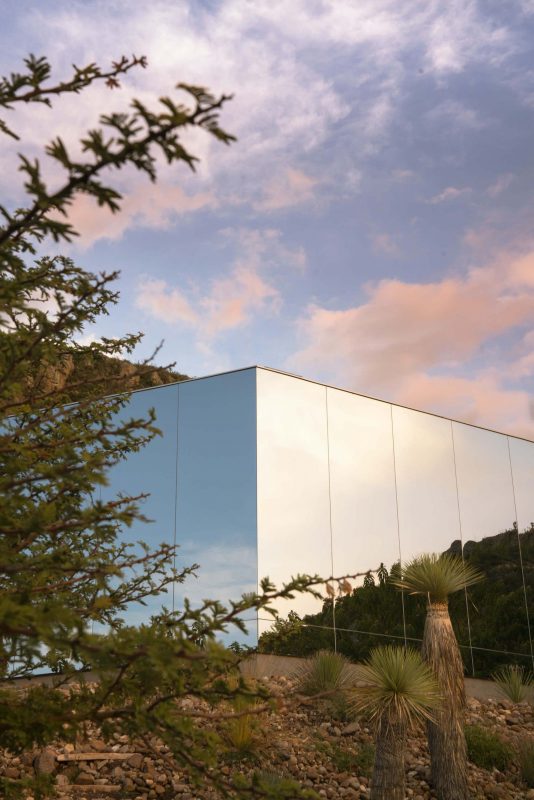
Photography by © Prashant Ashoka
SUSTAINABILITY AND INTEGRATION
Conceived as an off-grid hideaway for two – by Mexico-based Singaporean writer and designer Prashant Ashoka – Casa Etérea is a 75-square-metre dwelling that draws all its power from solar energy; its water supply from collected rainwater; and uses a patterned ultraviolet coating on the mirror making it visible to birds while remaining reflective to the human eye.
“The vision was to create a theatre to nature”, Ashoka explains, “so sustainability was crucial in achieving a truly complete integration with the environment”.
Working from an intention to leave the landscape untouched, the foundation of the house was built entirely from rock collected off the mountain. And by utilizing site orientation, efficient ventilation design, and insulated glass, the house naturally regulates temperature in the semi-arid desert climate of the central Mexican highlands.
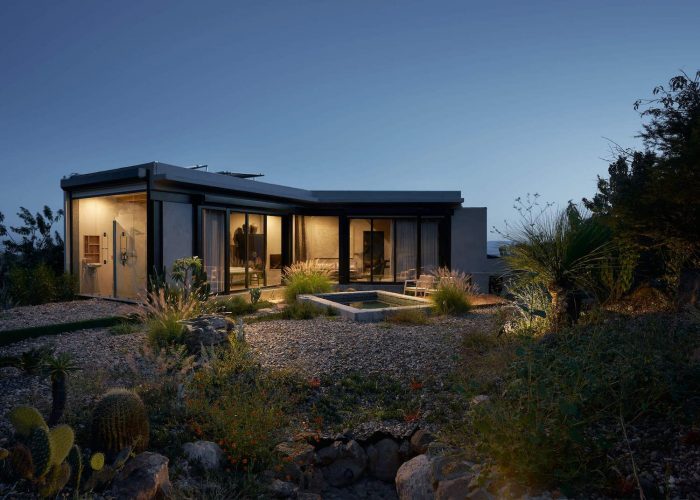
Photography by © Kevin Scott
HOUSE DESCRIPTION
The open-planned concept consists of two rectilinear volumes that merge at a 120-degree V-shaped intersection – drawing an angular likeness to a staggering ravine visible through the exposed glass shower.
From the central living space and bedroom, floor-to-ceiling sliding glass doors frame vistas of towering cliffs, while opening to connect with a decked patio and pool area shaded by olive and pomegranate trees. Behind the intimate kitchen, a rooftop stairway access doubles as a utility room, and remote-controlled outdoor PVC shutters were added to provide security and privacy.
Inside, exposed ceiling beams and concrete walls celebrate the construction process, while a material palate of jute, leather, wood and stone continue the natural aesthetic for the furnishings – including a statement copper bathtub beside the bed.
Heavily inspired by the concept of “emotional architecture,” – coined by Mexican architect Luis Barragán and sculptor-painter Mathias Goéritz – Casa Etérea achieves this deeper sensory resonance by using exterior mirrored panels to create a visually abstract and interactive experience. The mirrored façade diffuses the liminal space between the wild and the structured while allowing the volume to take on a transitional quality as it reflects the unfolding seasons.
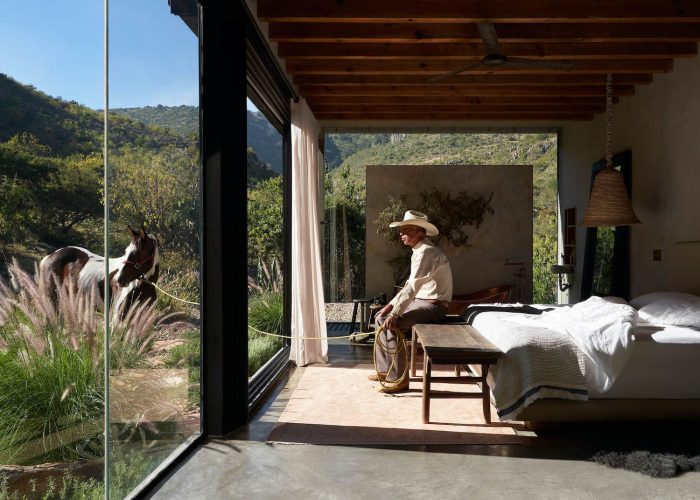
Photography by © Kevin Scott
As it catches first light, the house gleams as a phosphorescent blue-tinged box, standing in glassy contrast against the felted nocturnal blackness of the mountainside. And in the ombre hues of sunset the volume scintillates against the landscape like a mirage, before disappearing entirely – its structural boundaries never once attempting to alter the surroundings in which it sits.
Alluding to this quality of the building, the name ‘Etérea’ translates from Spanish to ‘ethereal’, and suggests a nebulous, otherworldly vision. Both visually and functionally, the project touches on architecture as site-specific installation art and as an extension of the environment.
On creating a reciprocal dialogue between the construction and its terrain, Ashoka says: “Light becomes a structural element of this design, distorting the perspective of where the observer begins and the landscape ends. I wanted this interplay of light and scale to evoke a deep sense of awe for the wild, and to beg questions about our role as stewards in the preservation of our ecosystems”.
ISOLATIONIST TRAVEL
As more travelers seek out remote experiences amidst social distancing concerns, spaces too have the opportunity to evolve in order to inspire a deeper examination of our relationship with nature.
According to Ashoka, such isolated lodgings have the power to turn us inwards: “These times have made us acutely aware of our interdependence with our environment. And shelters in remote places may afford us a rare stillness and opportunity to bridge the distance between us and the natural world”.
Project Info:
Architects: Prashant Ashoka
Location: San Miguel de Allende, Mexico
Area: 75 m²
Project Year: 2020
Photographs: Kevin Scott, Prashant Ashoka, Estudio Mavix
Manufacturers: Oskar Chertudi Maya, Gabriel Lopategui, Octavio Cambron Munguia, Mario Gonzalez, Antonio Santana ,Prashant Ashoka
Photography by © Kevin Scott
Photography by © Kevin Scott
Photography by © Kevin Scott
Photography by © Kevin Scott
Photography by © Kevin Scott
Photography by © Kevin Scott
Photography by © Kevin Scott
Photography by © Kevin Scott
Photography by © Prashant Ashoka
Photography by © Kevin Scott
Photography by © Prashant Ashoka
Photography by © Prashant Ashoka
Photography by © Prashant Ashoka
Photography by © Prashant Ashoka
Photography by © Kevin Scott
Photography by © Kevin Scott
Photography by © Kevin Scott
Photography by © Prashant Ashoka
Photography by © Prashant Ashoka
Photography by © Prashant Ashoka
Photography by © Prashant Ashoka
Photography by © Prashant Ashoka
Photography by © Kevin Scott
Photography by © Prashant Ashoka
Photography by © Prashant Ashoka
Photography by © Estudio Mavix
Photography by © Estudio Mavix
Photography by © Estudio Mavix
Photography by © Prashant Ashoka


